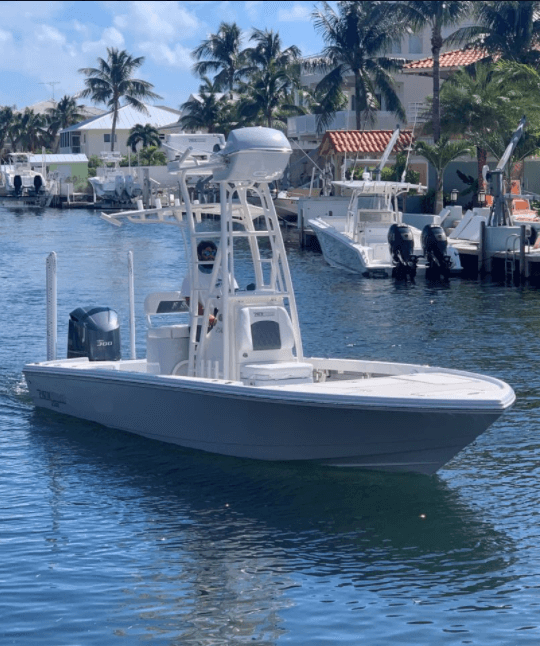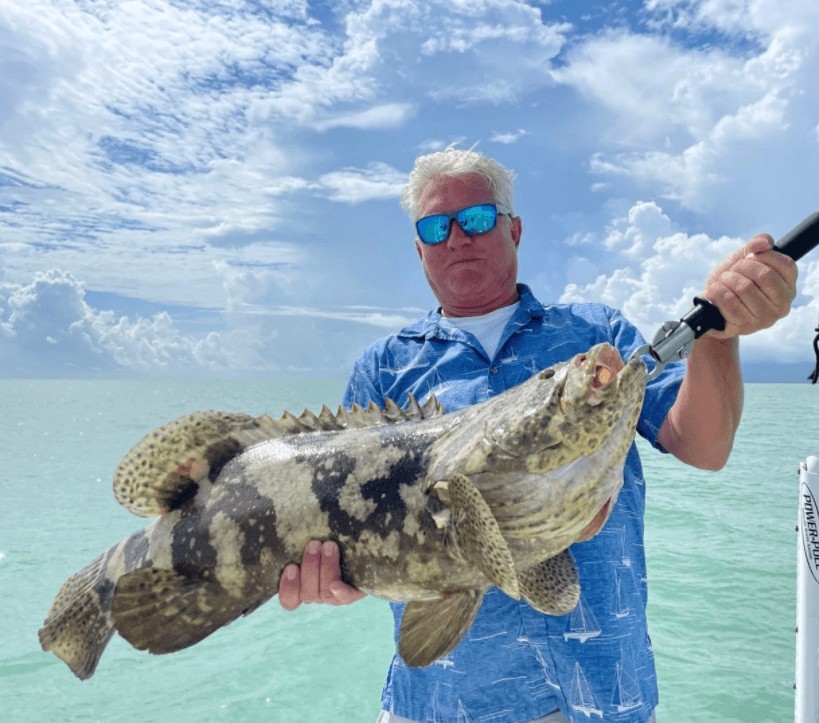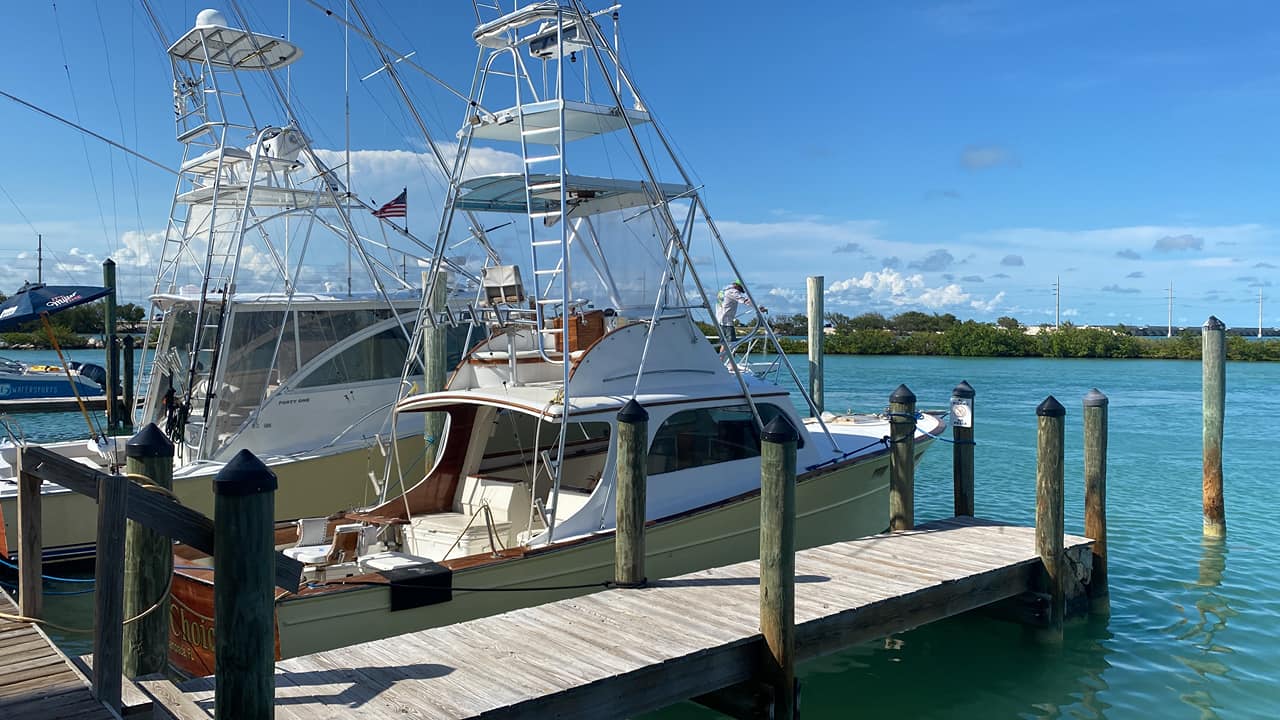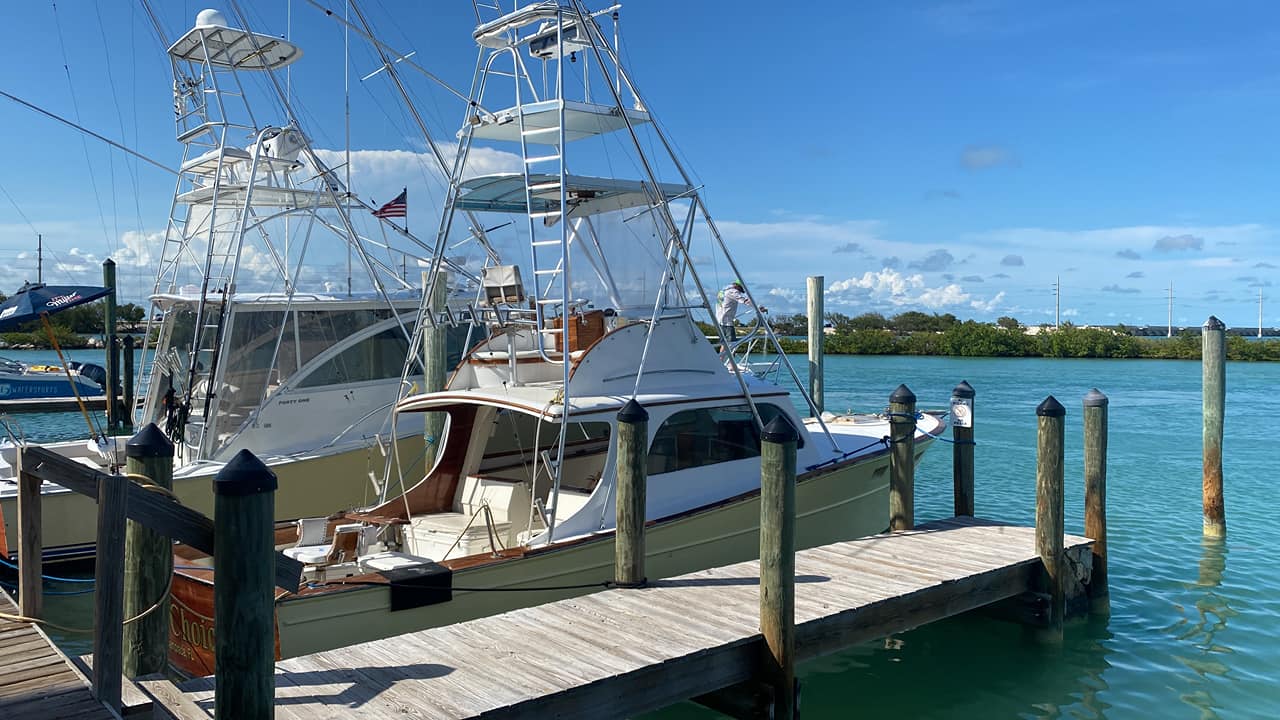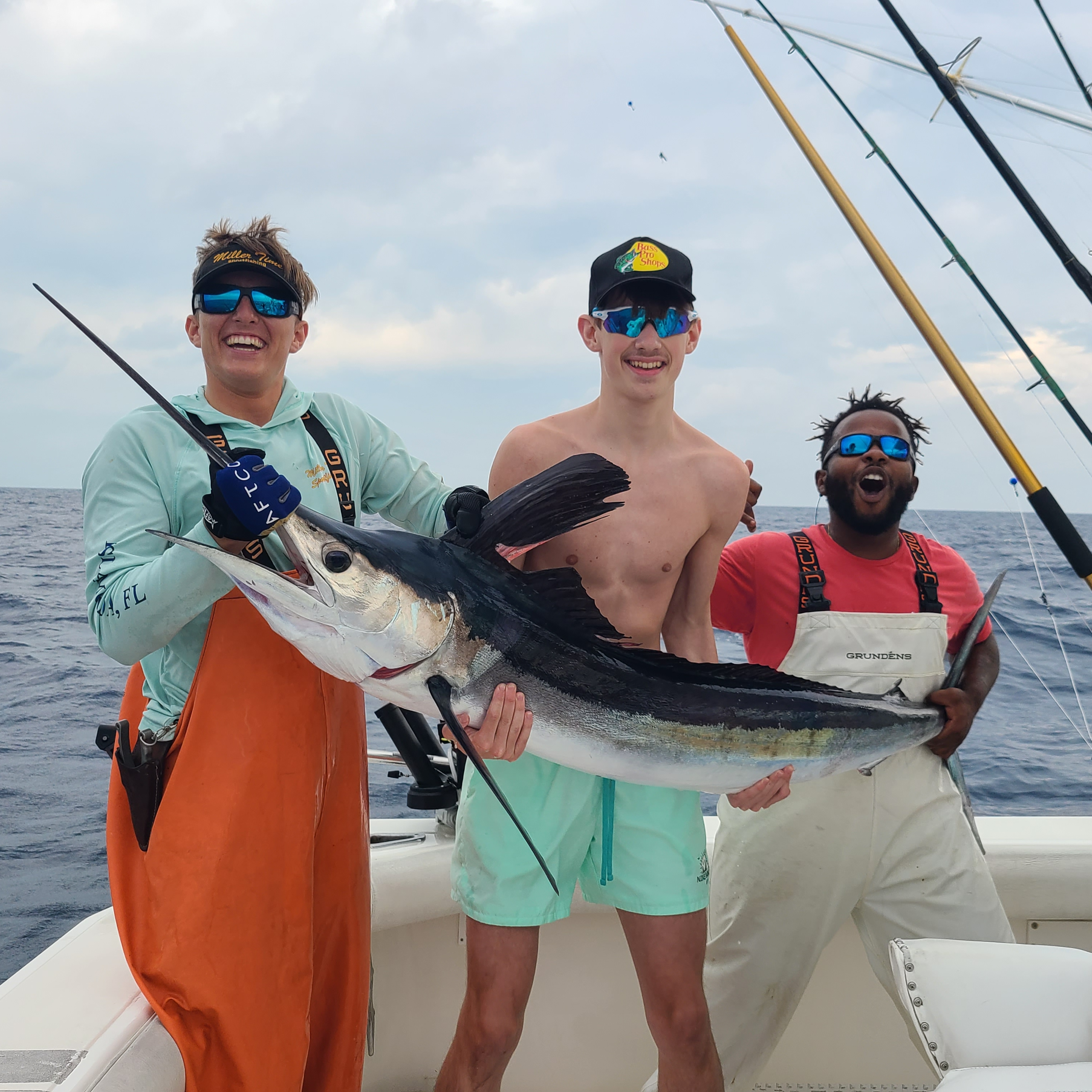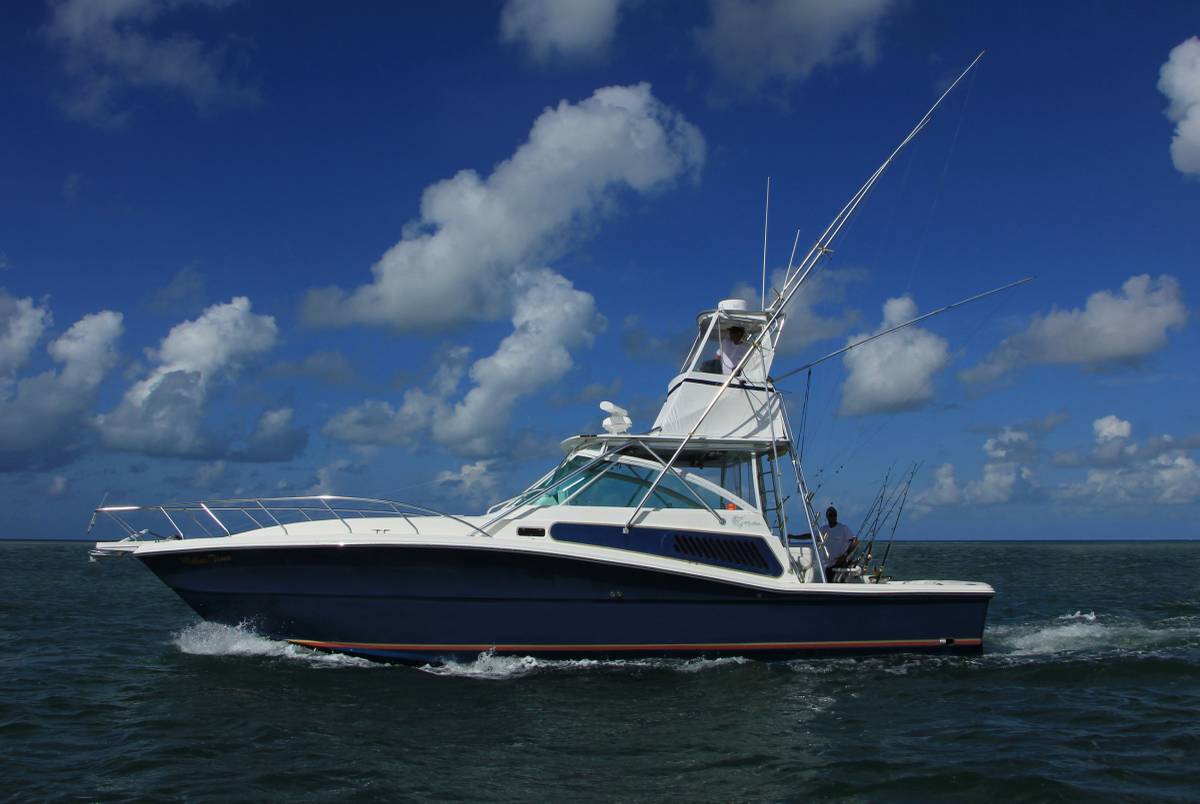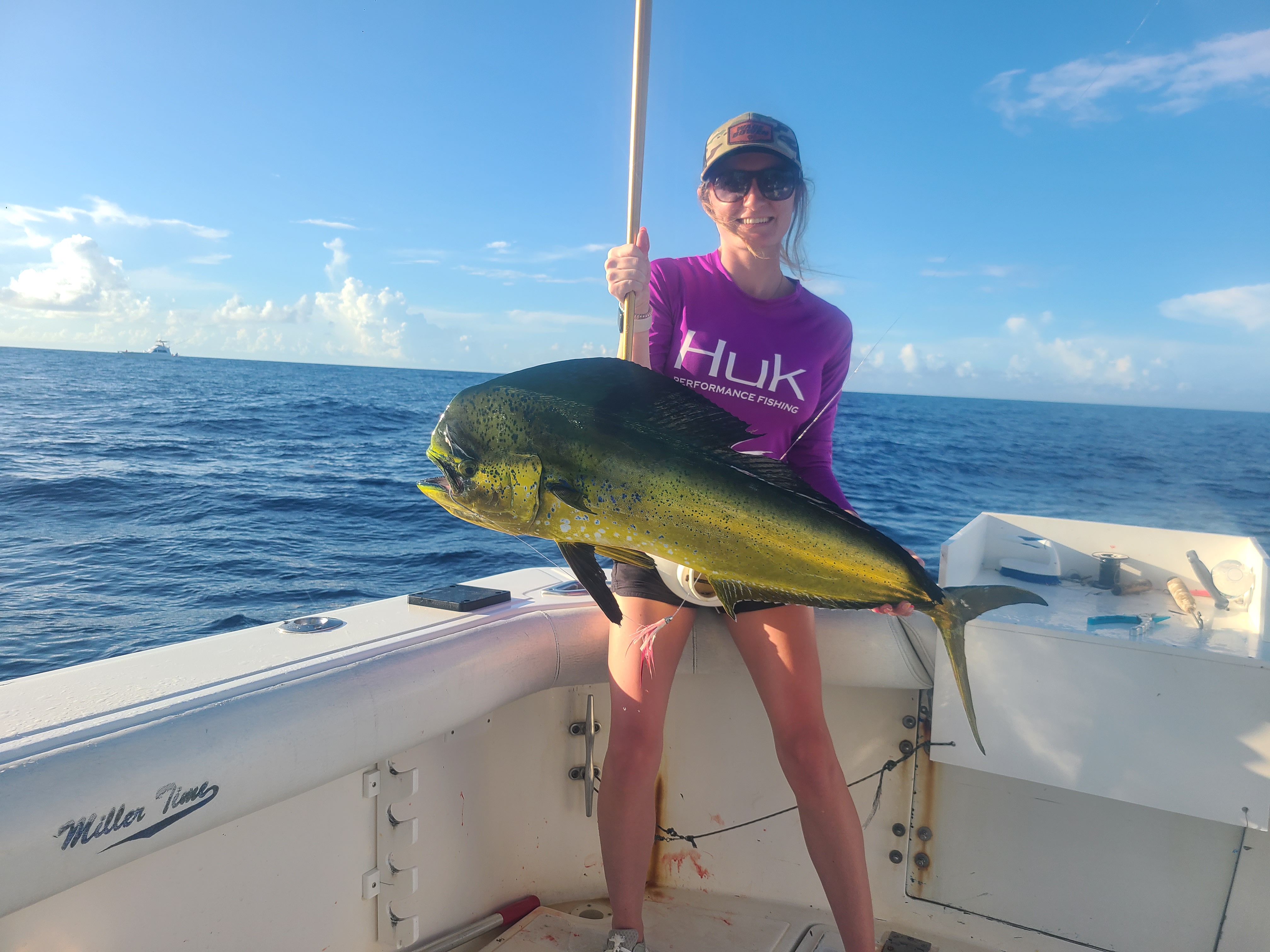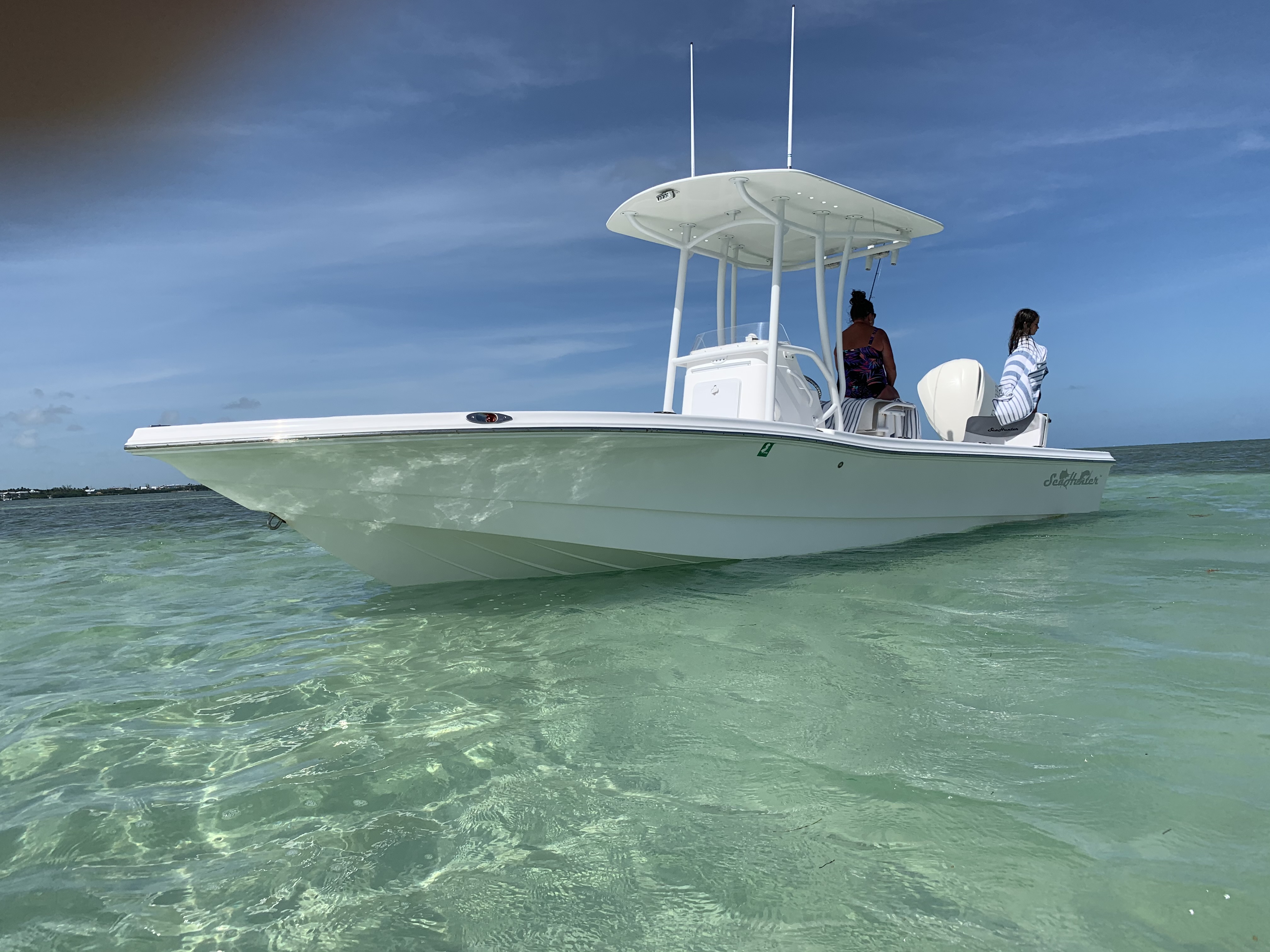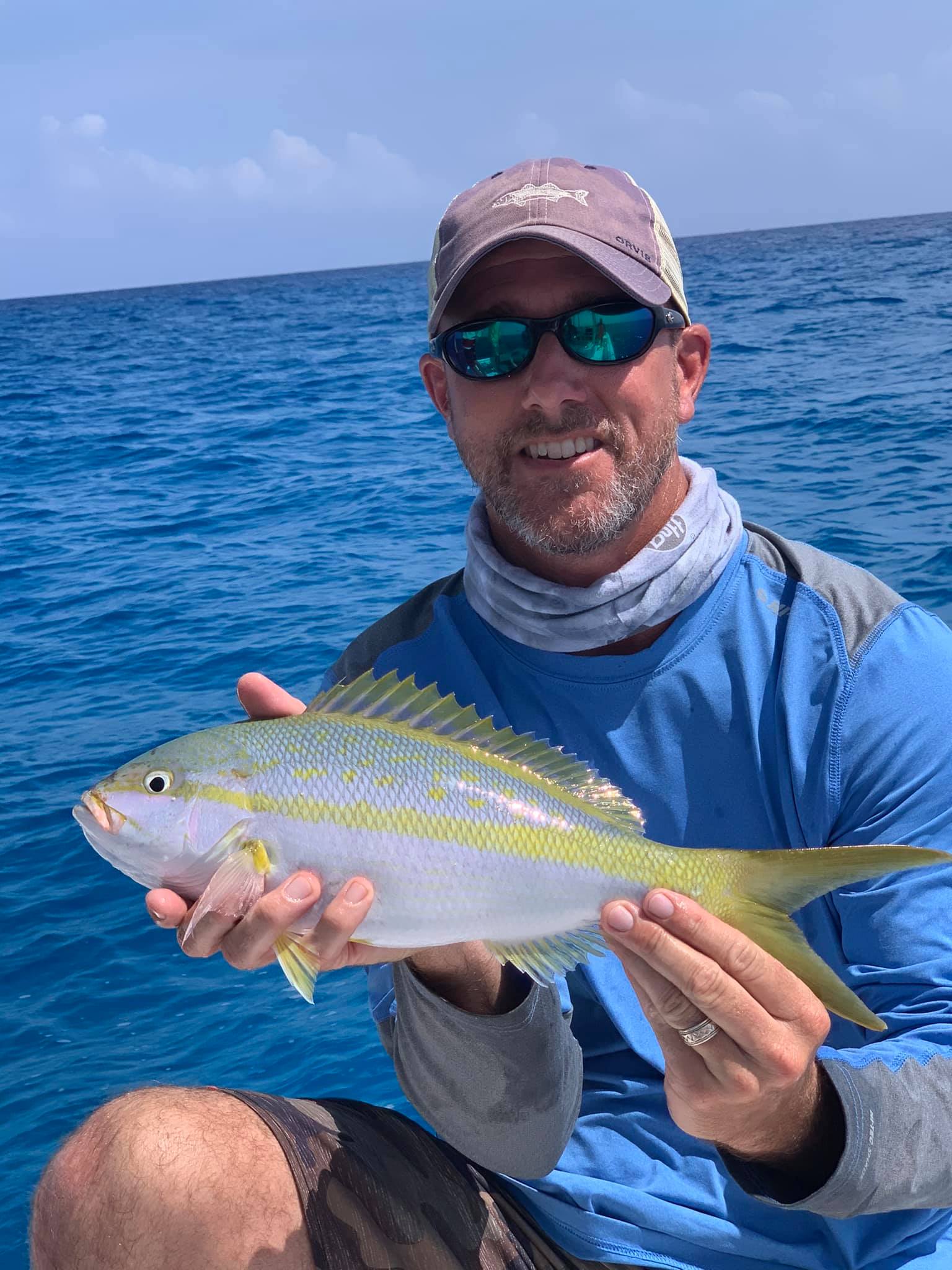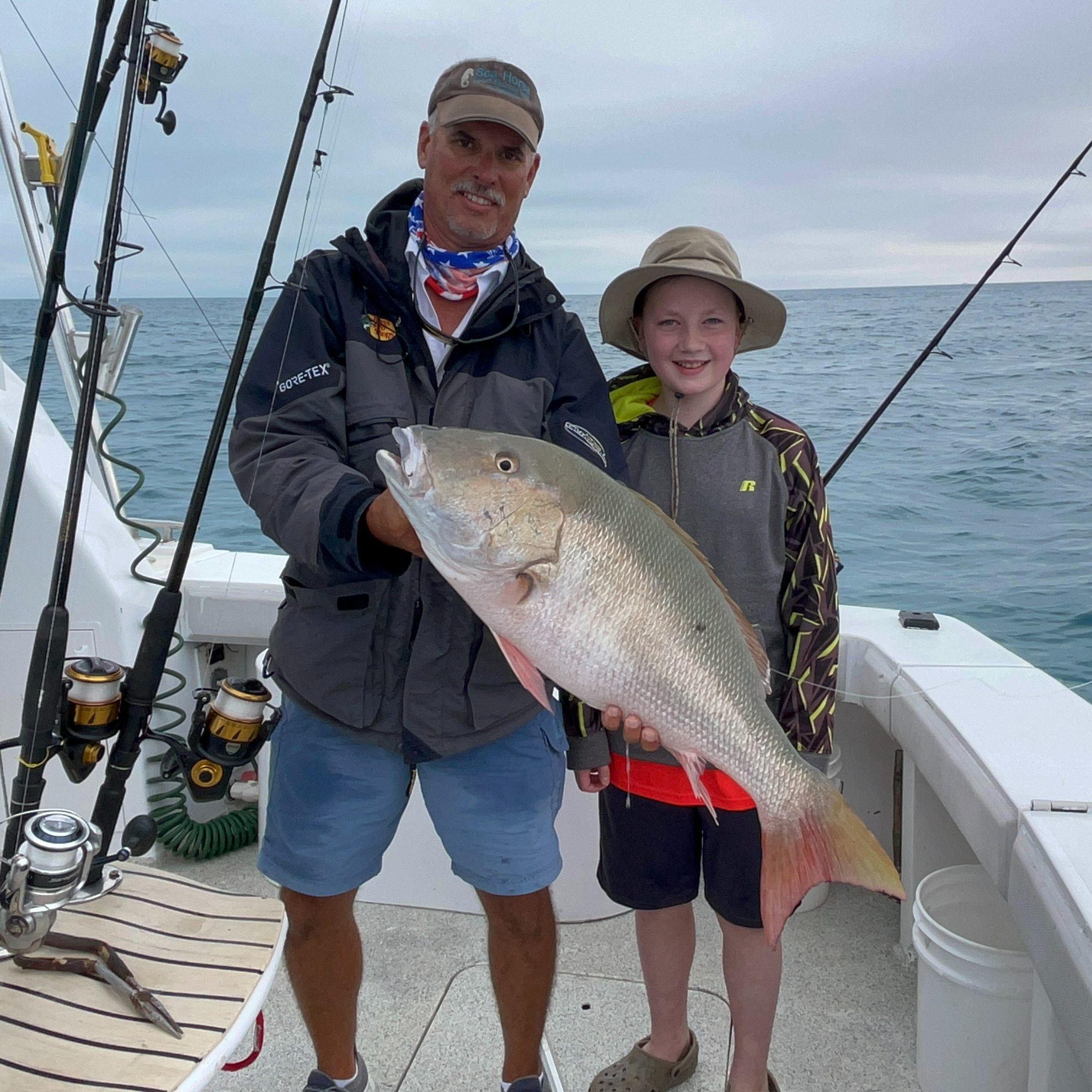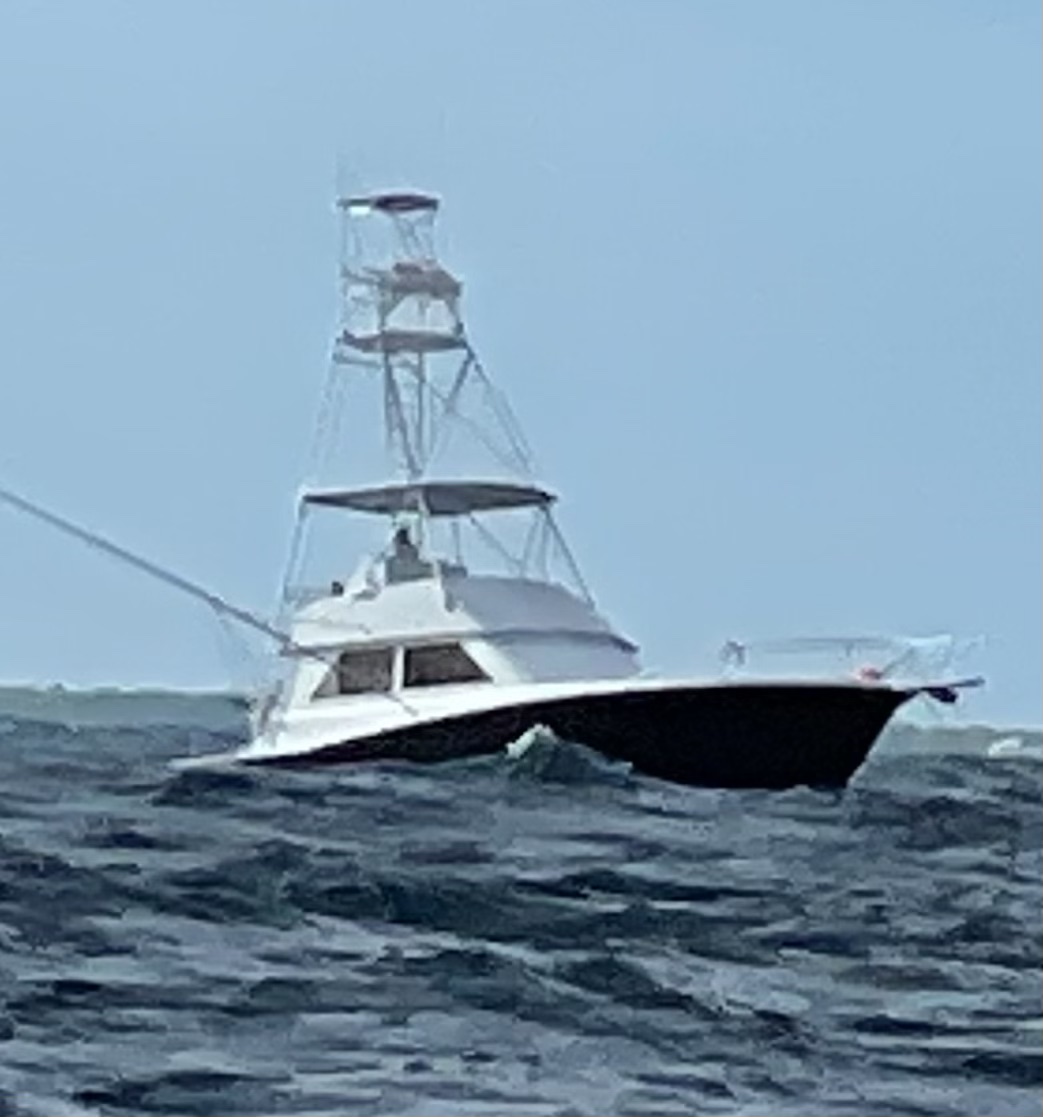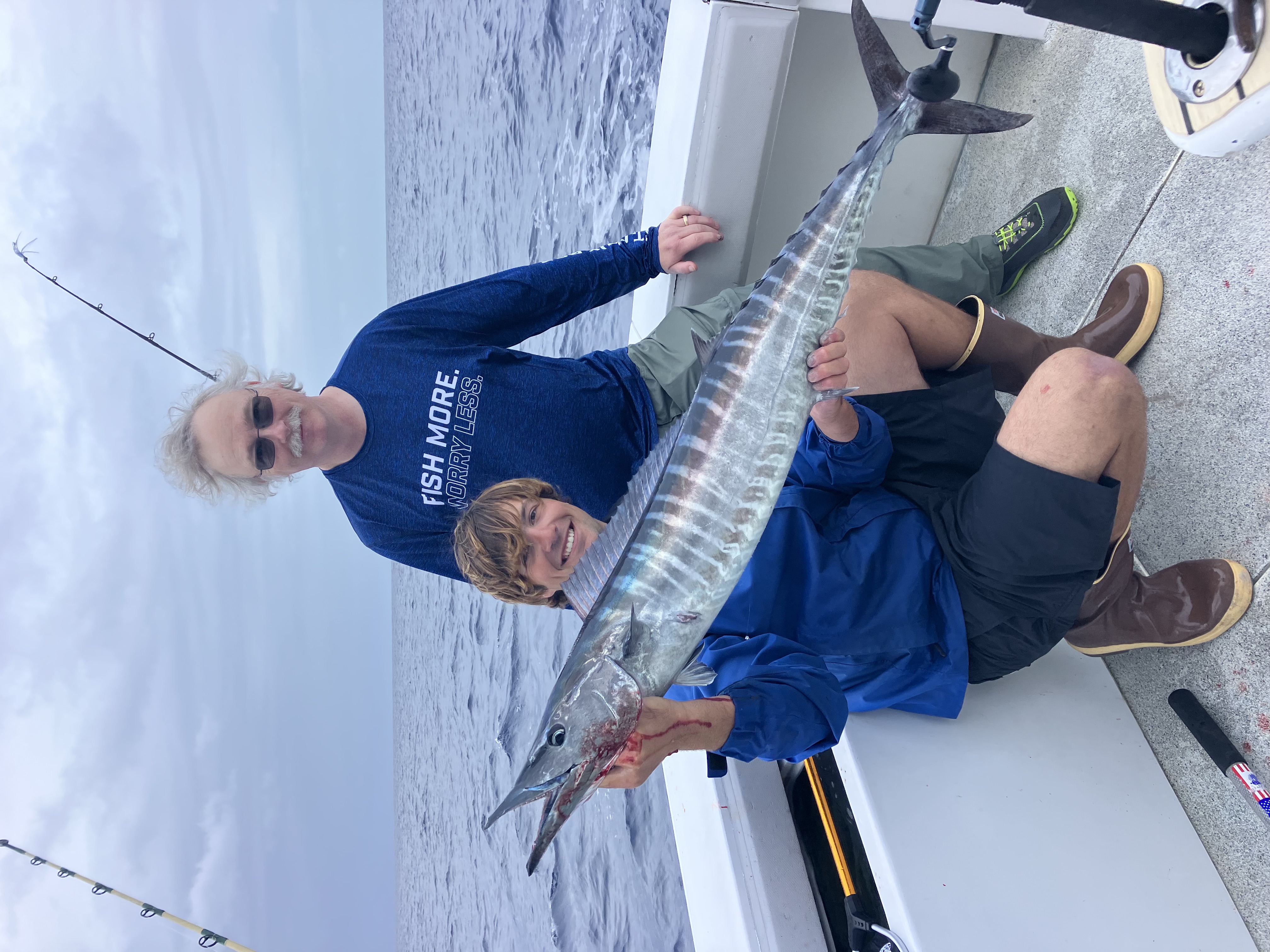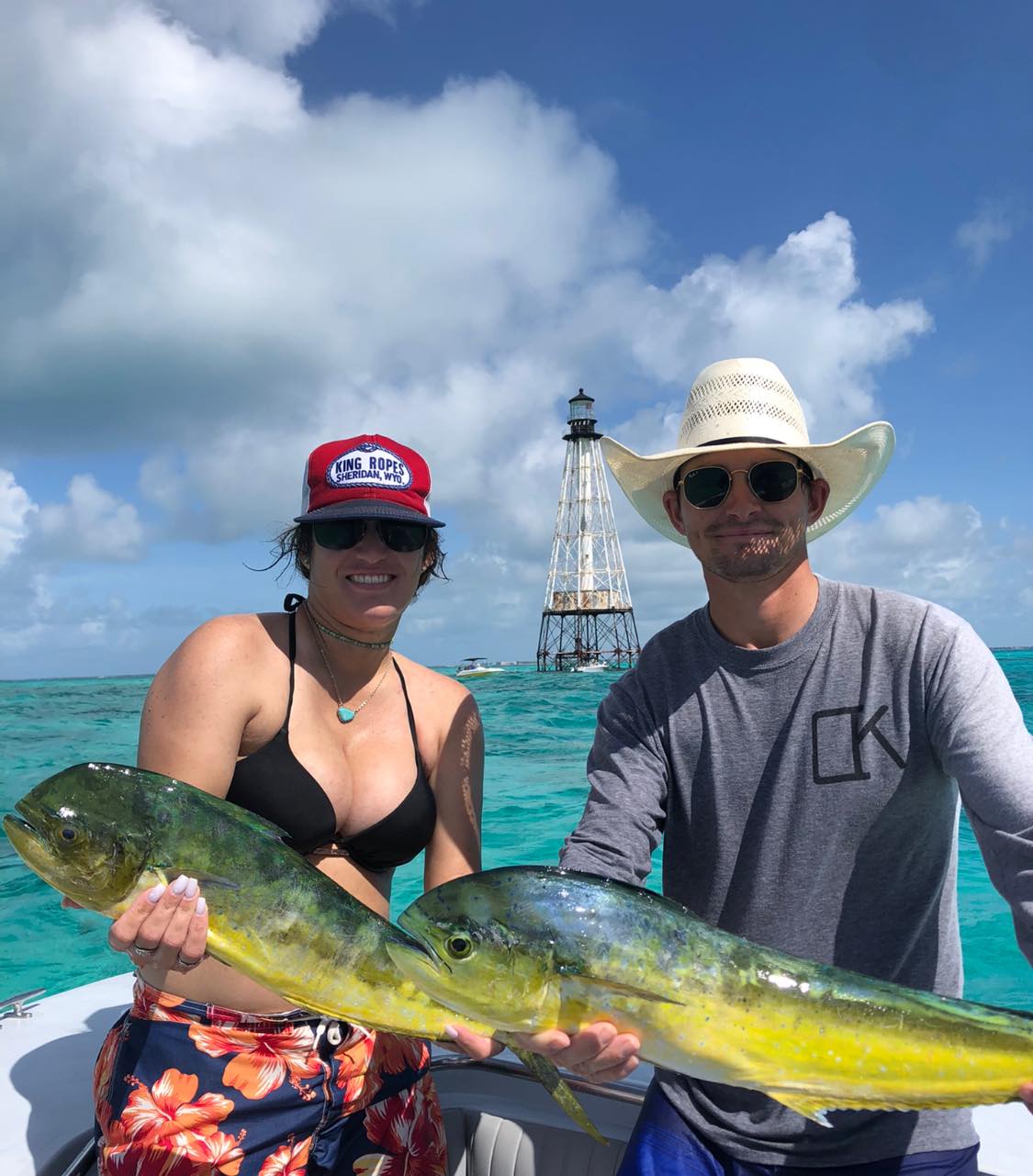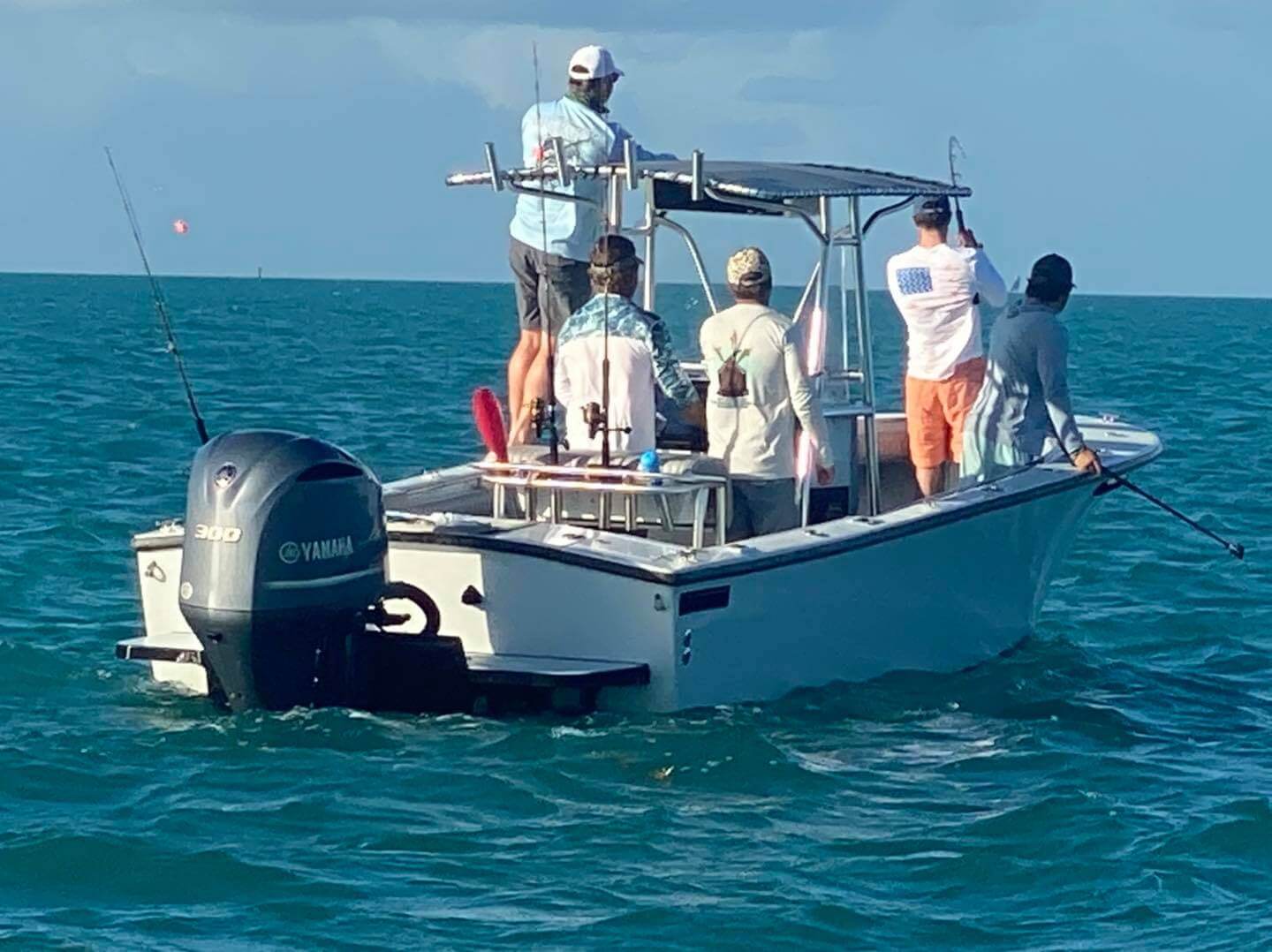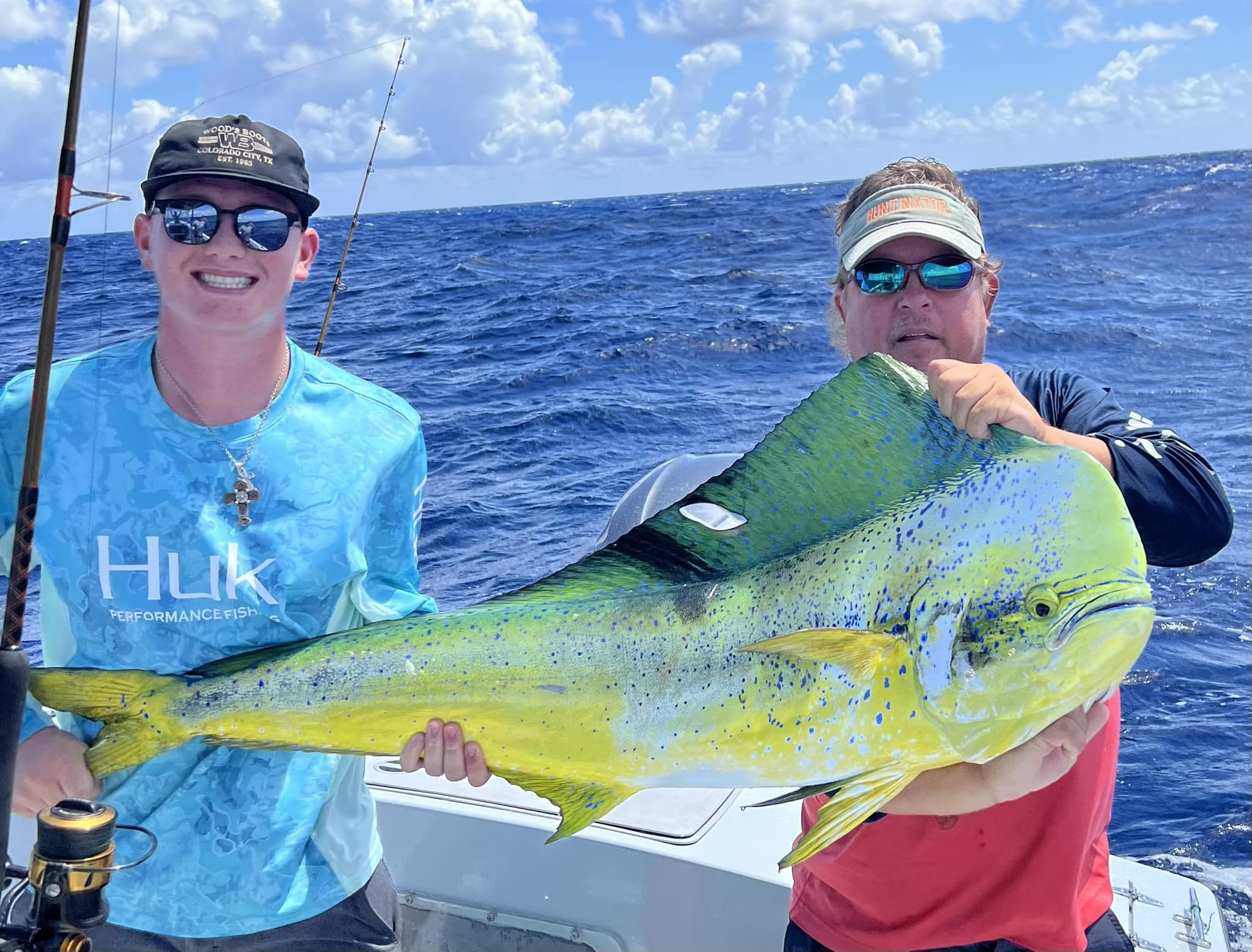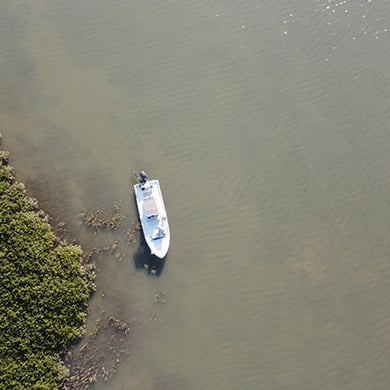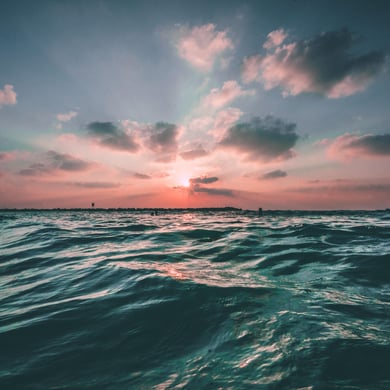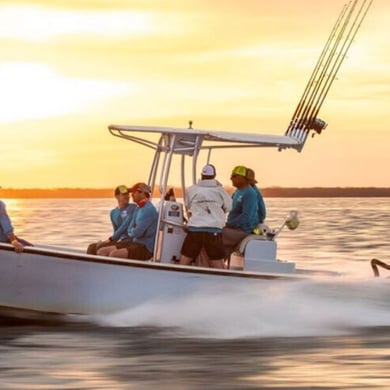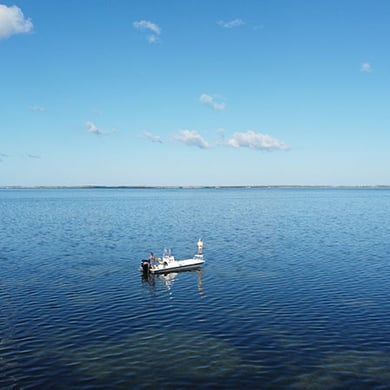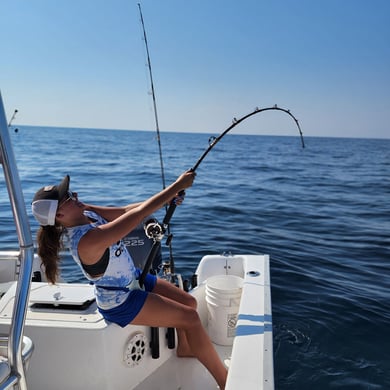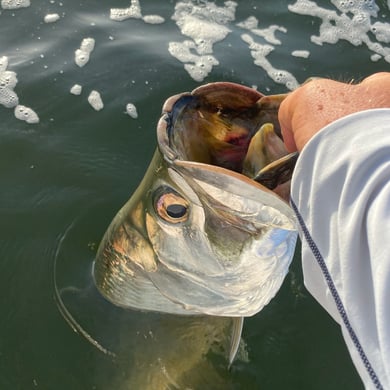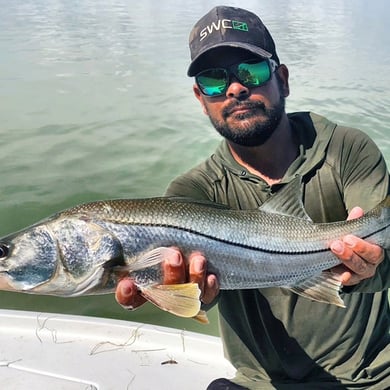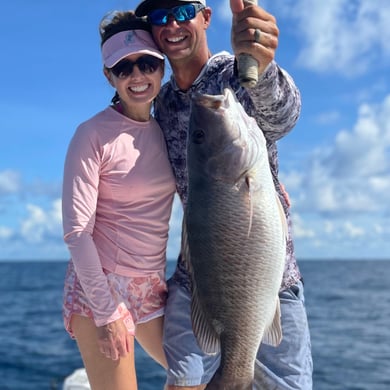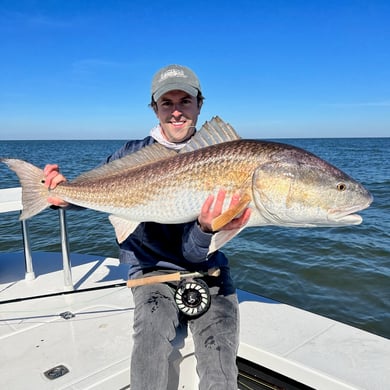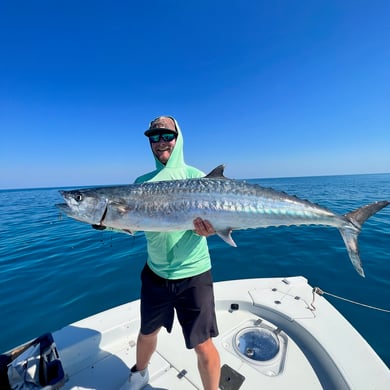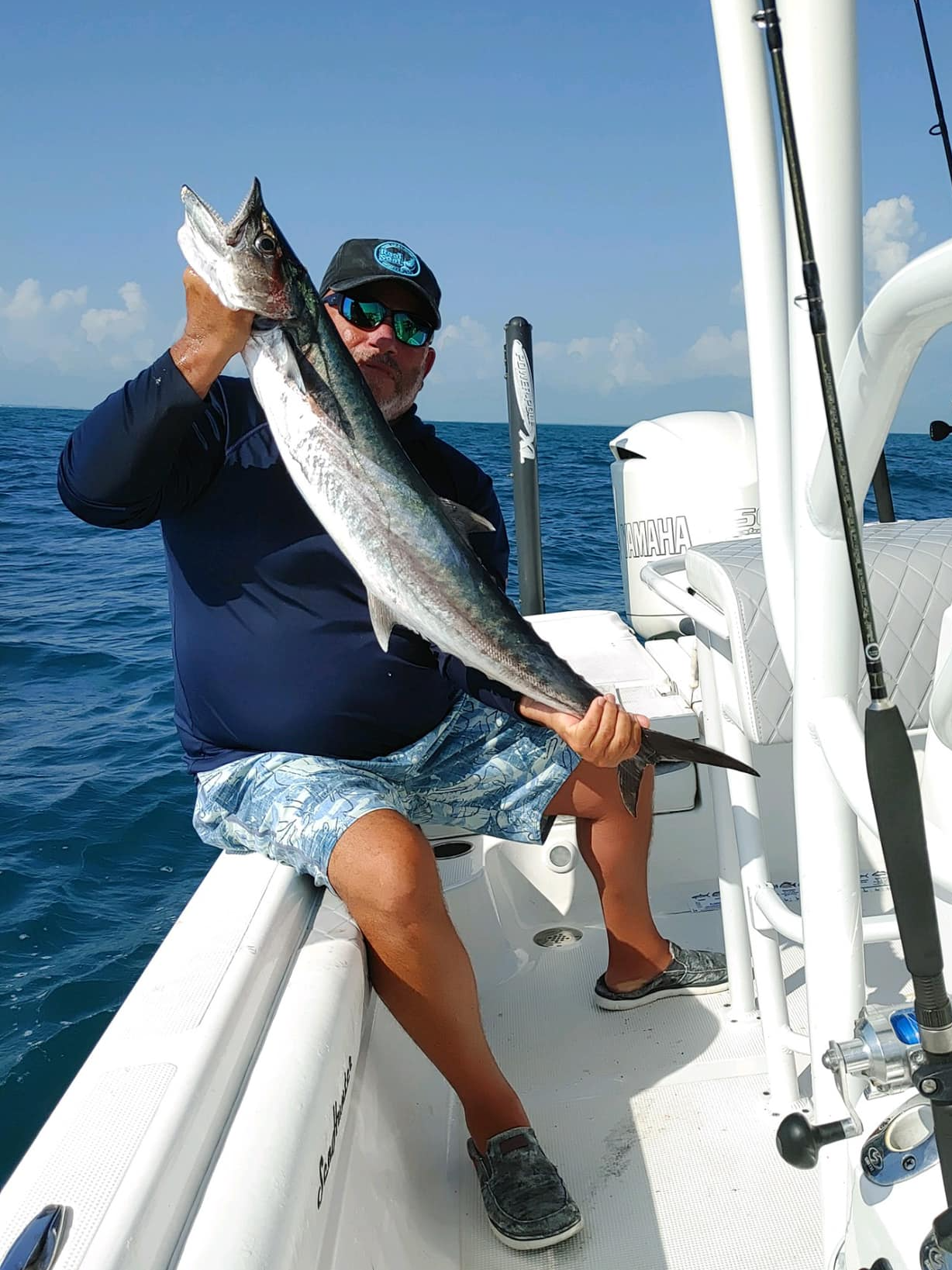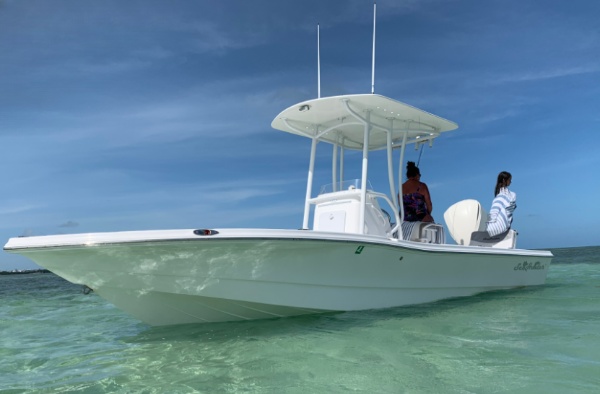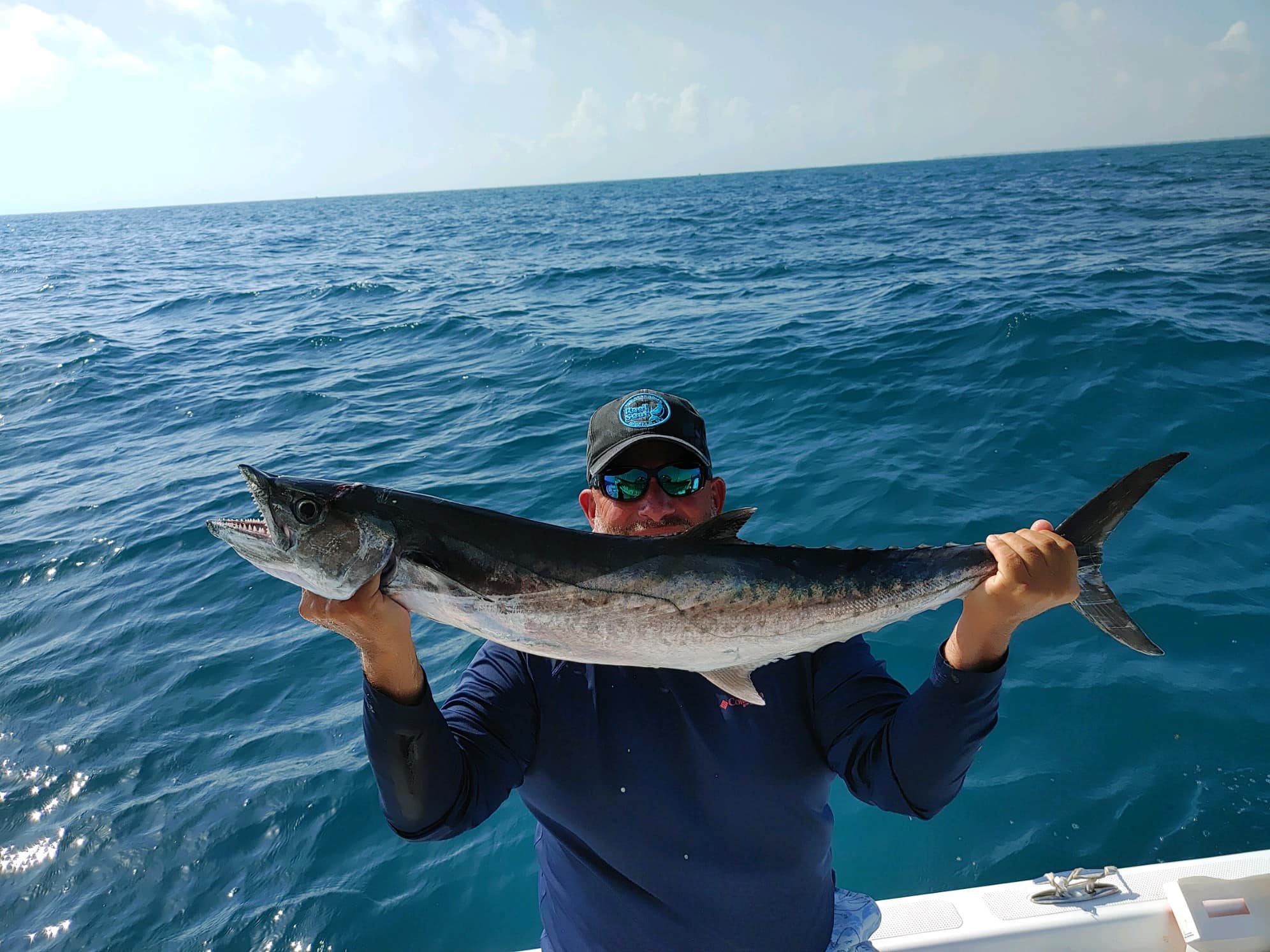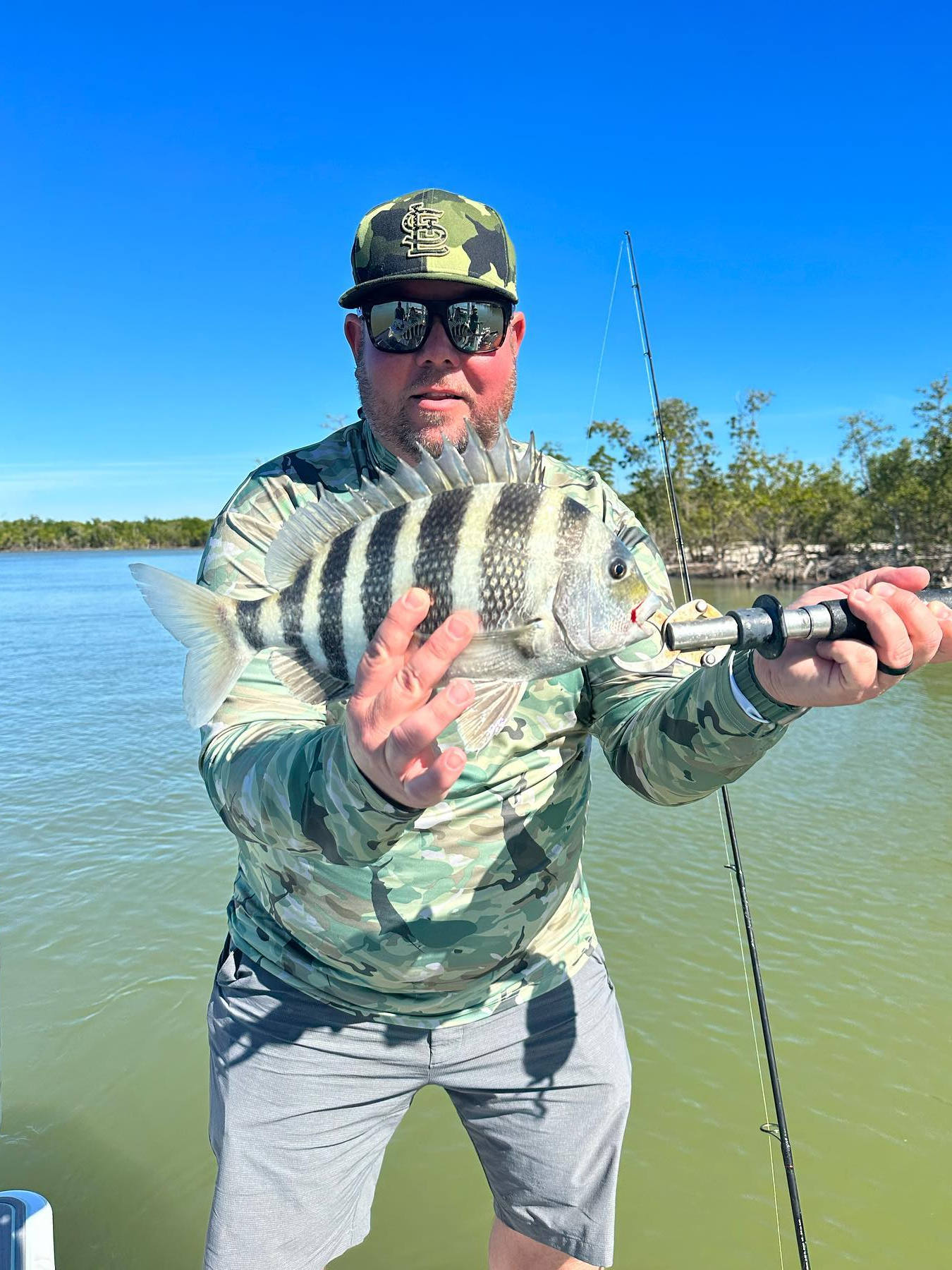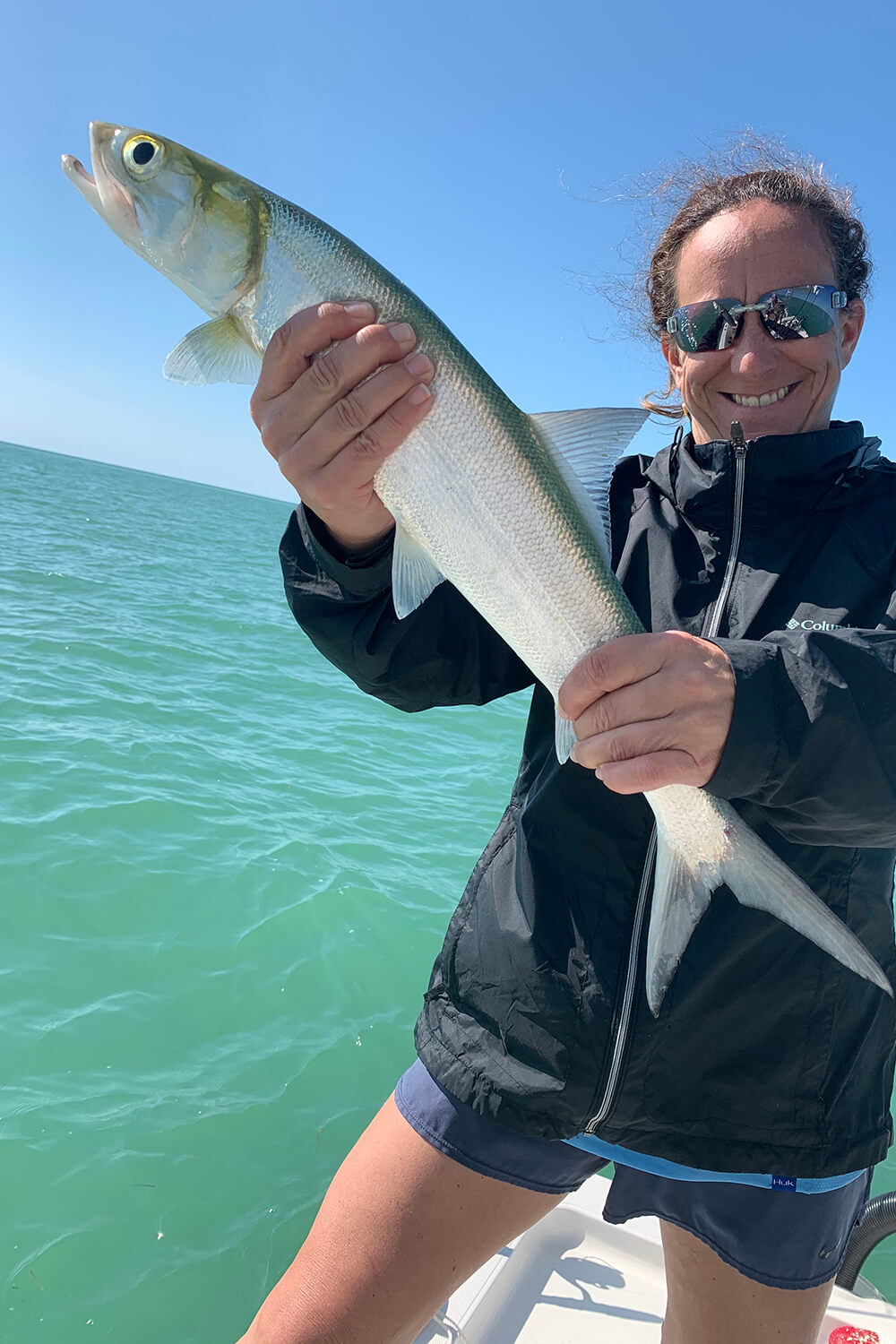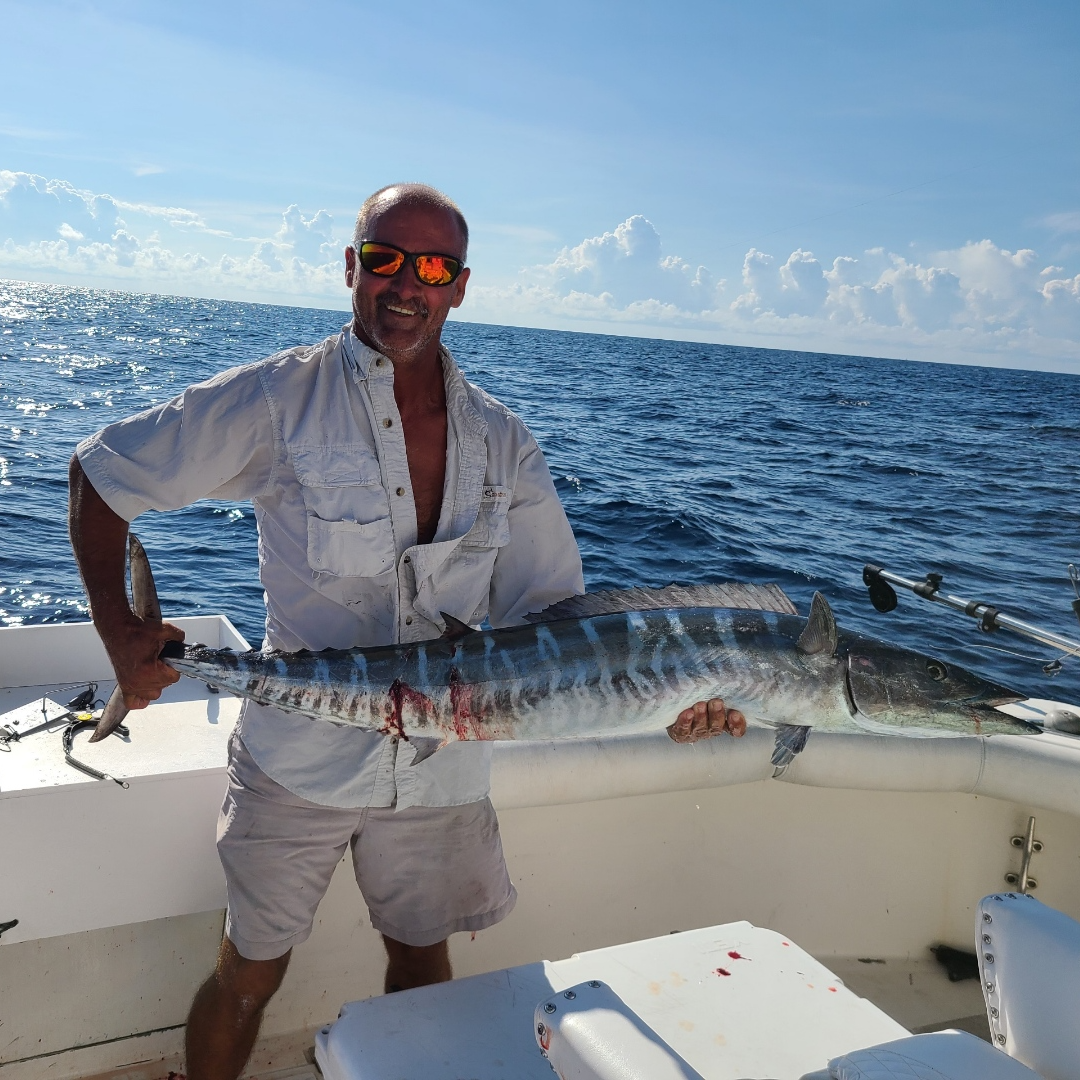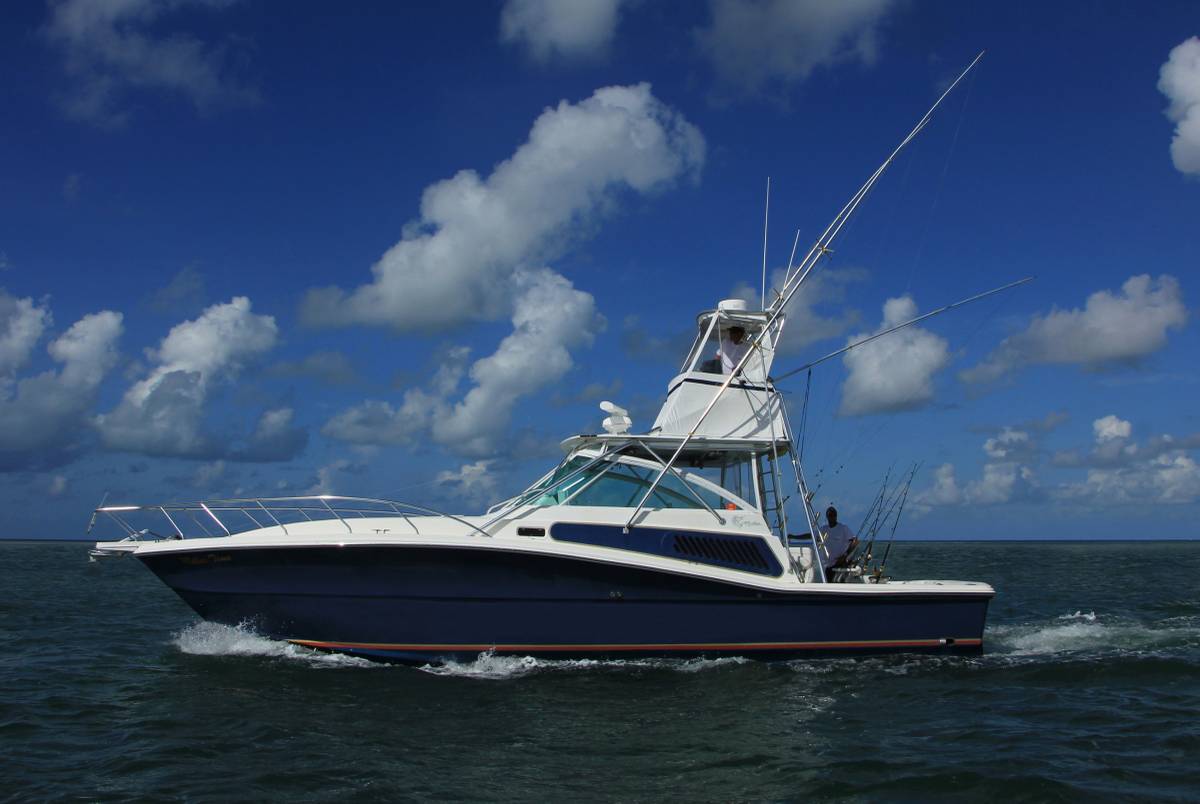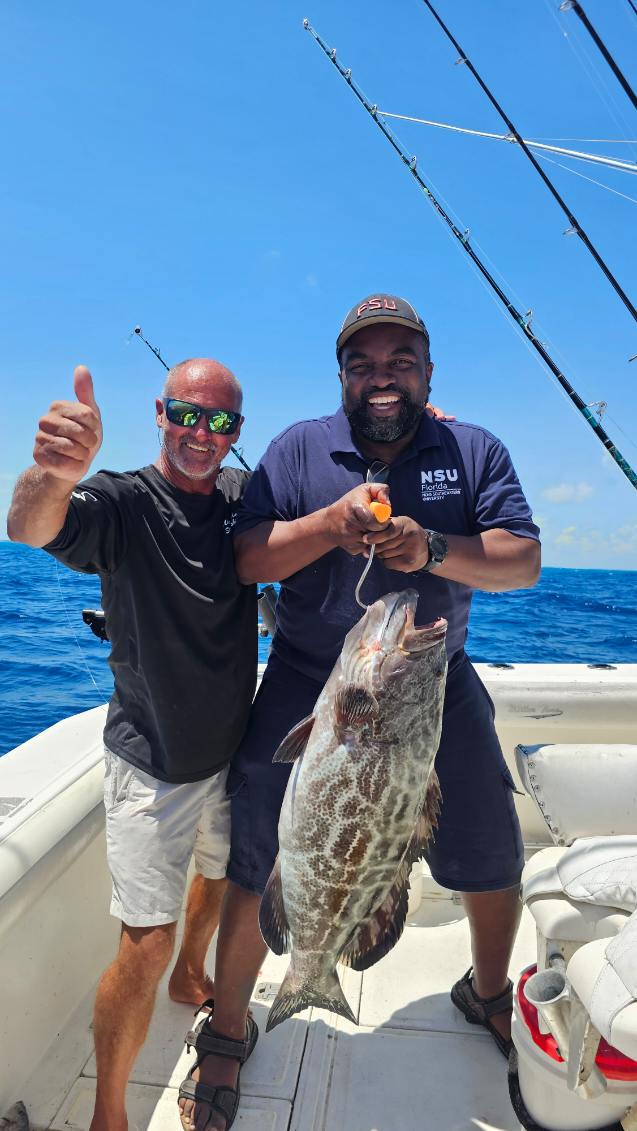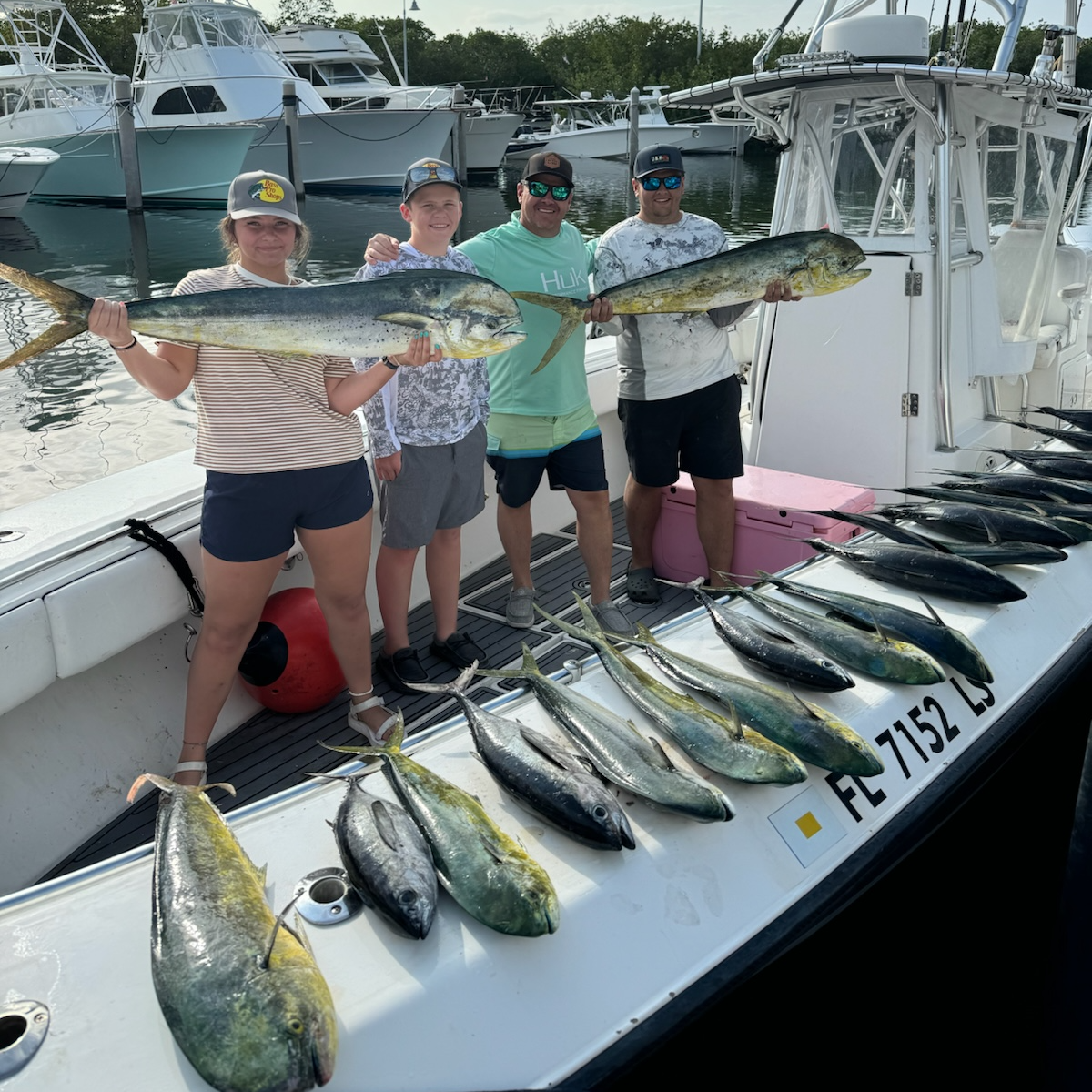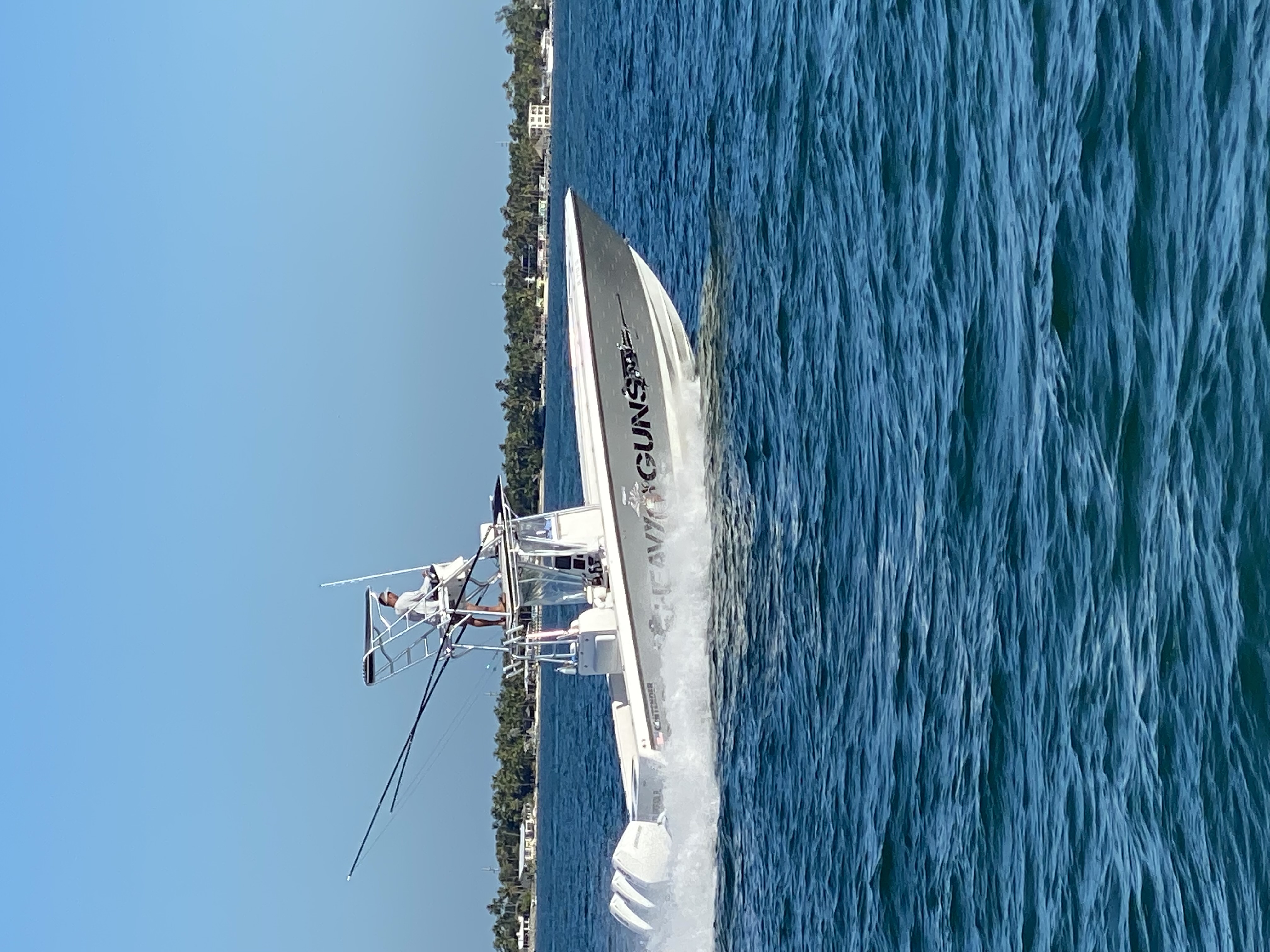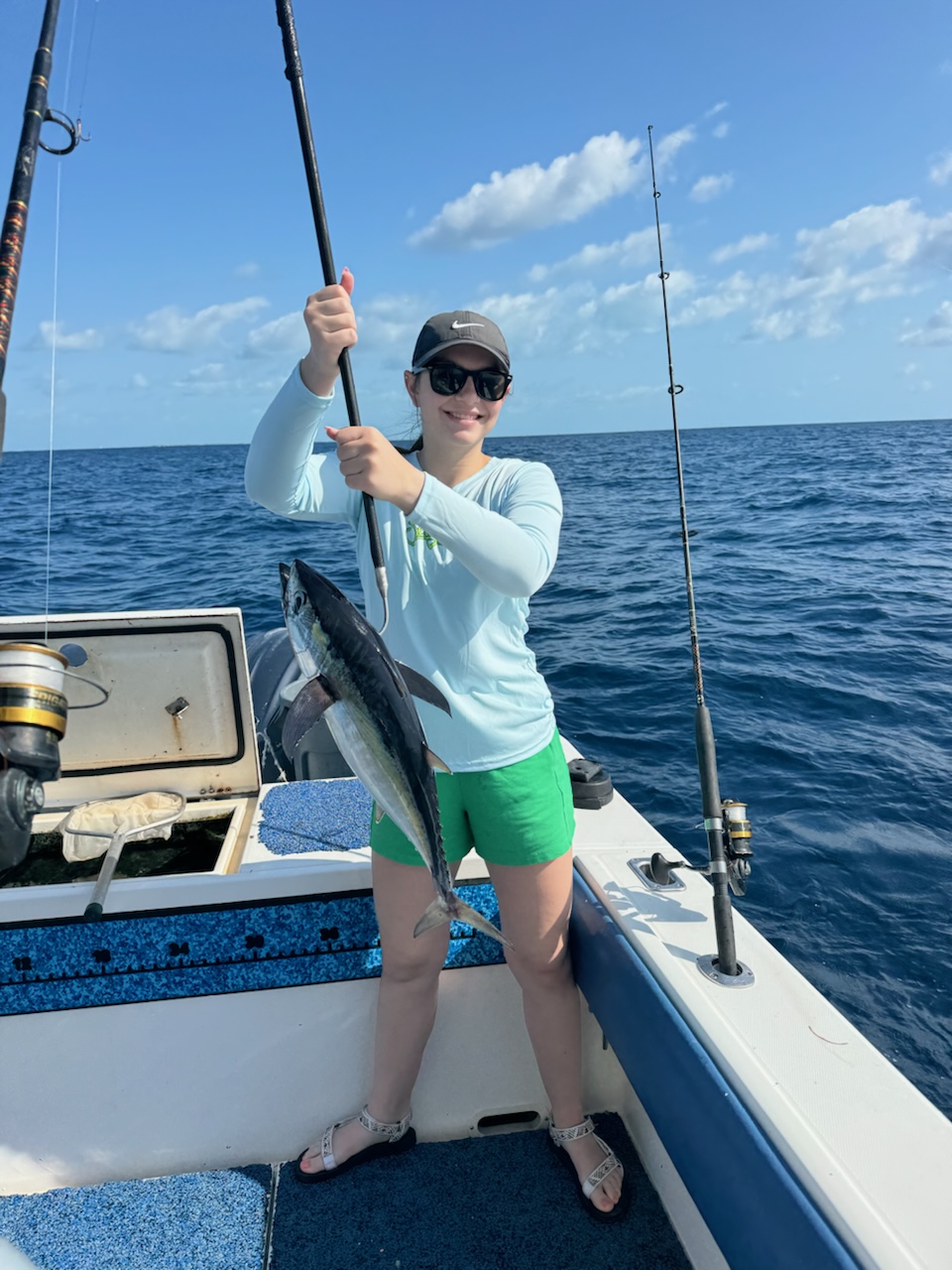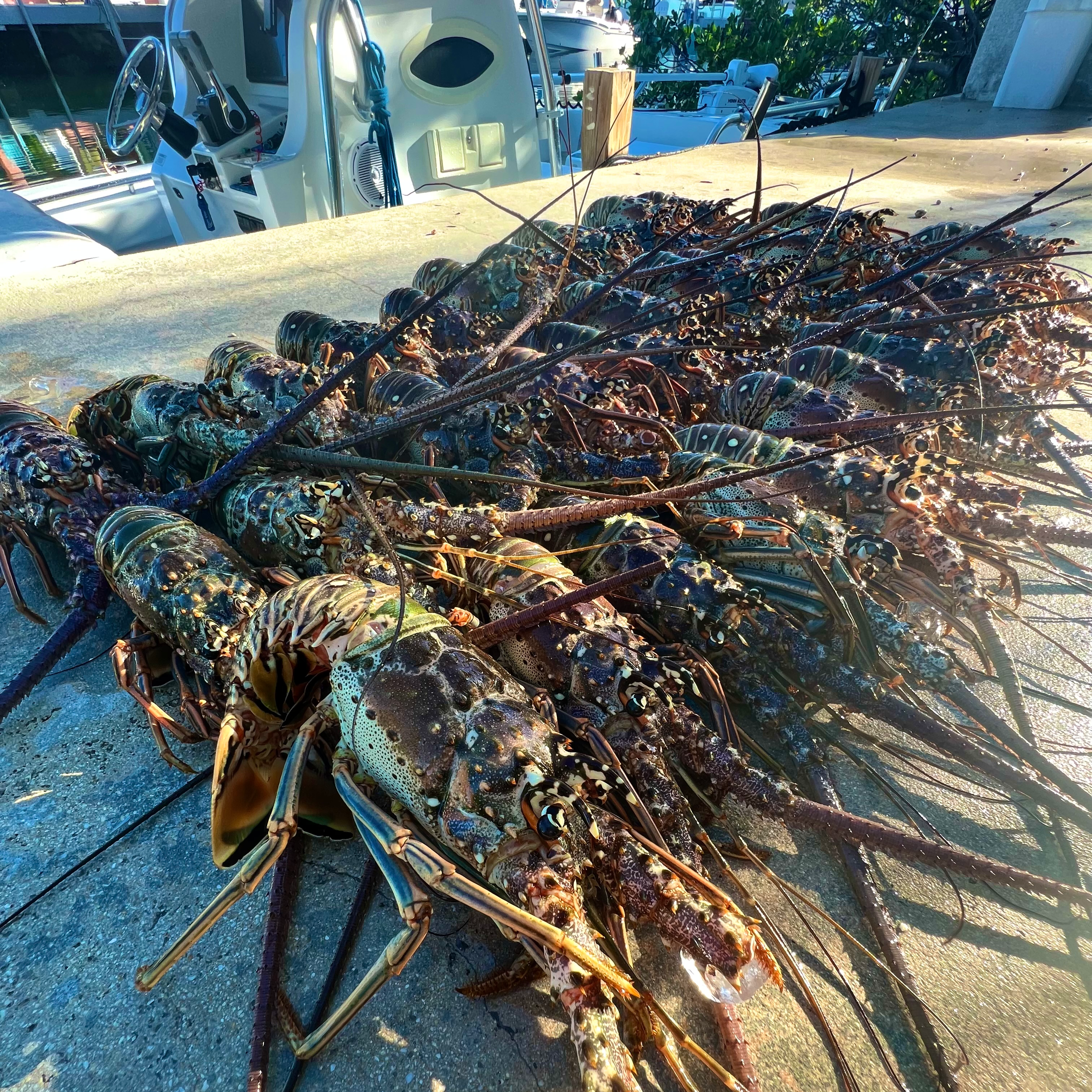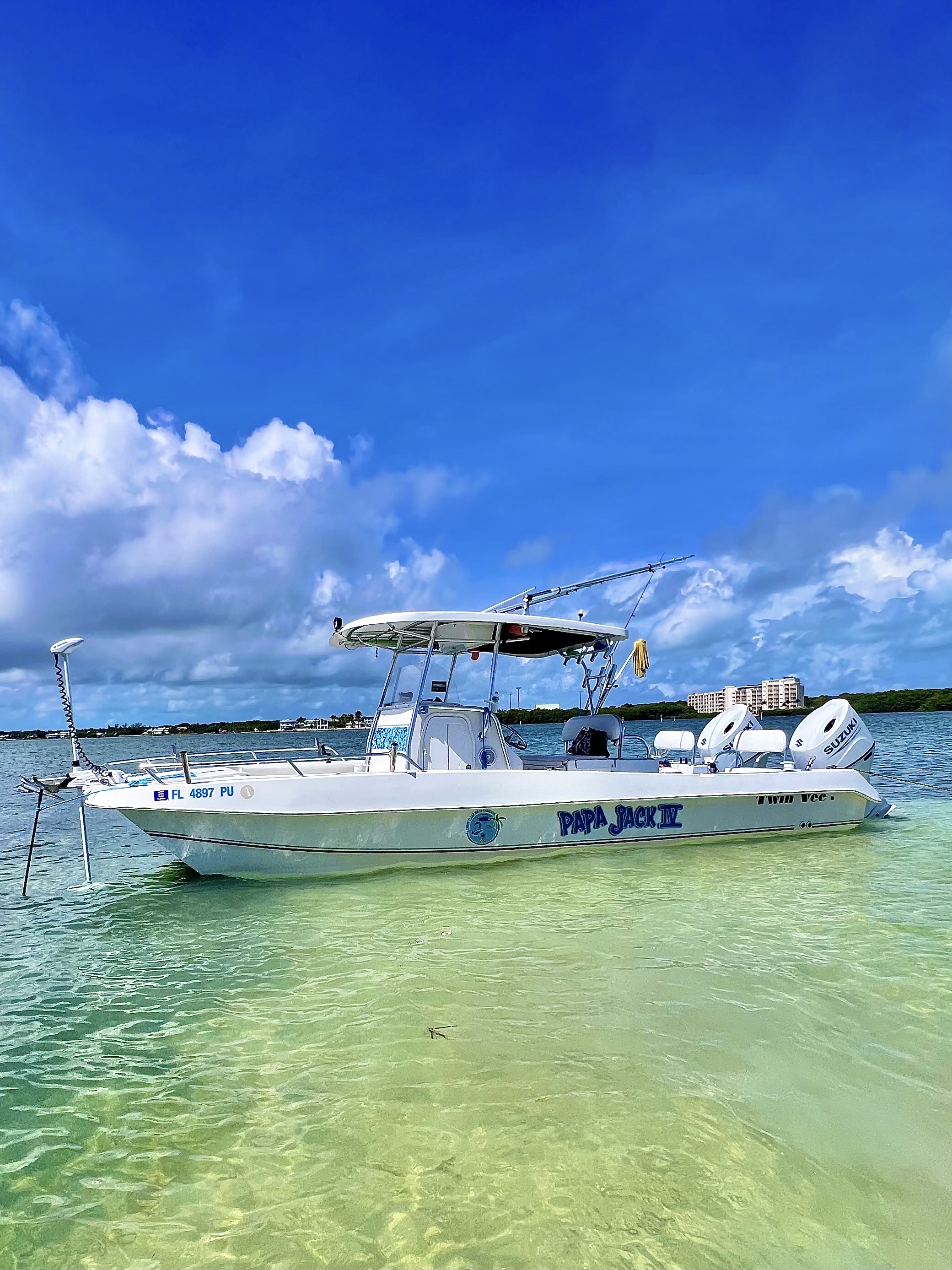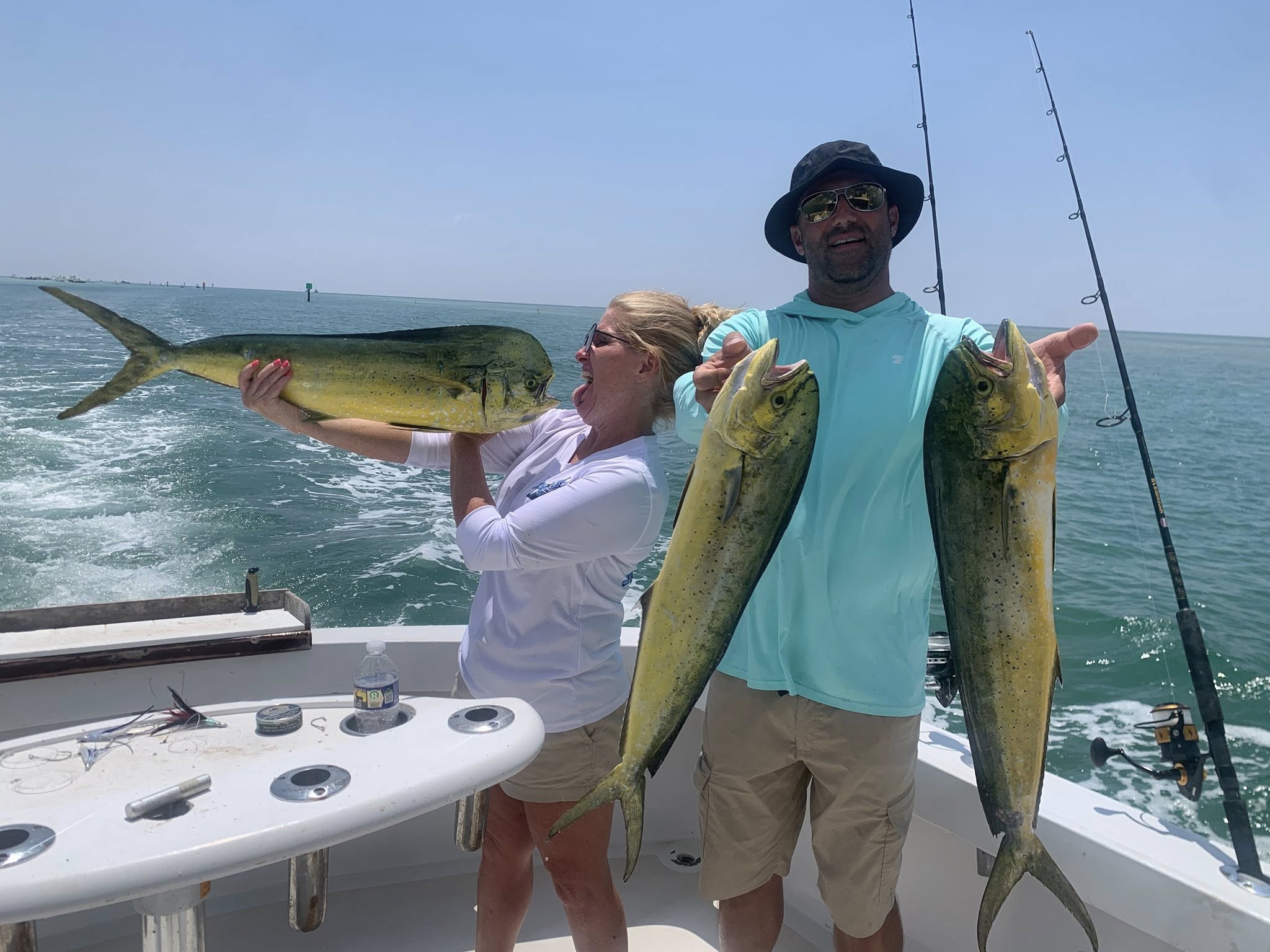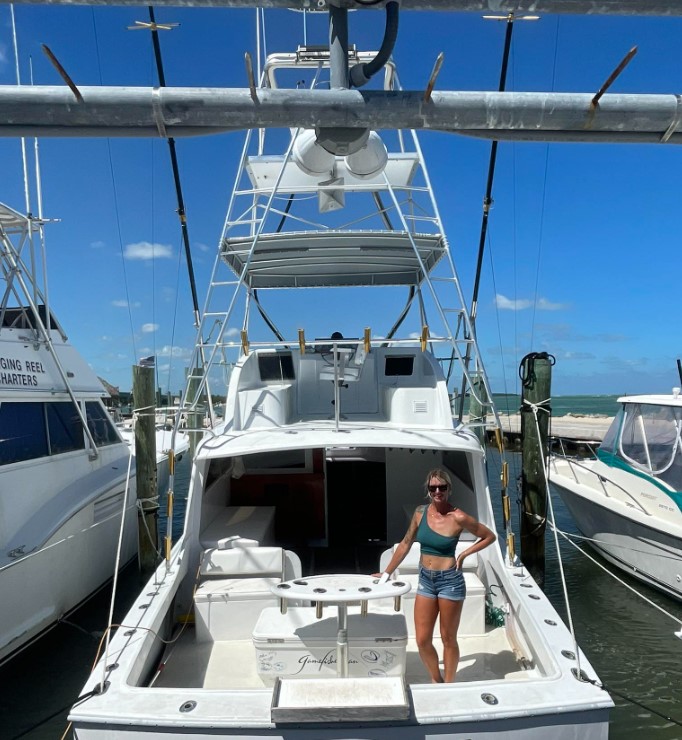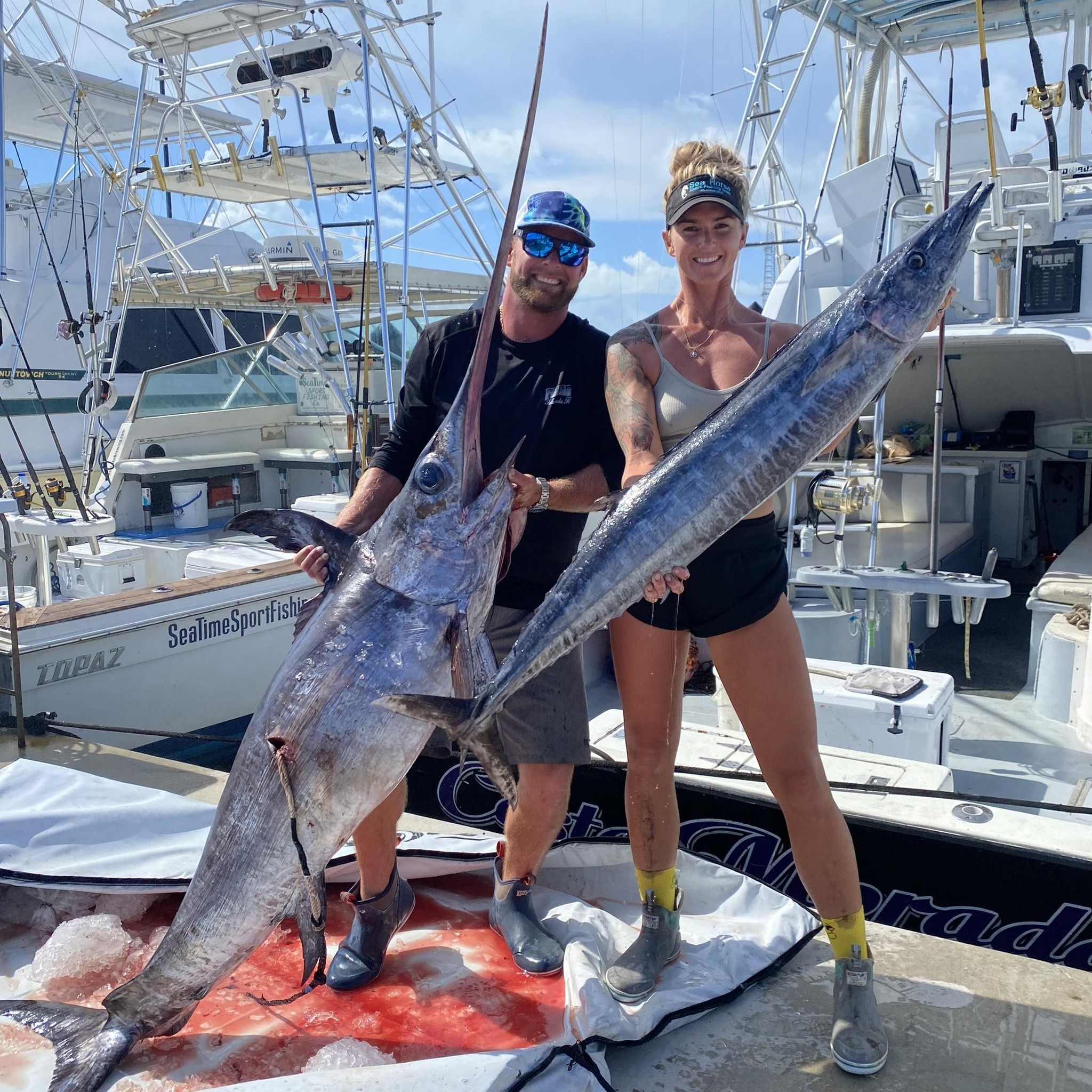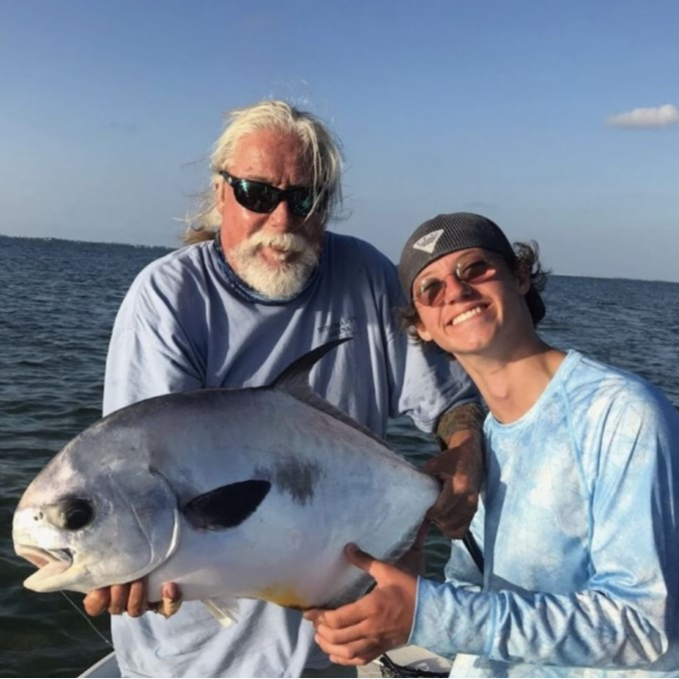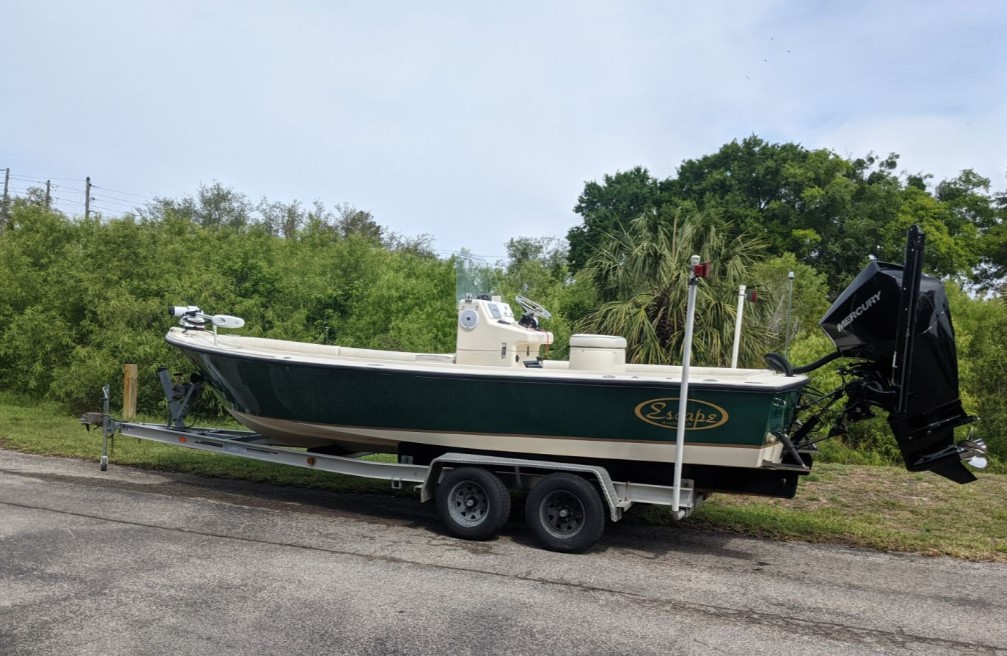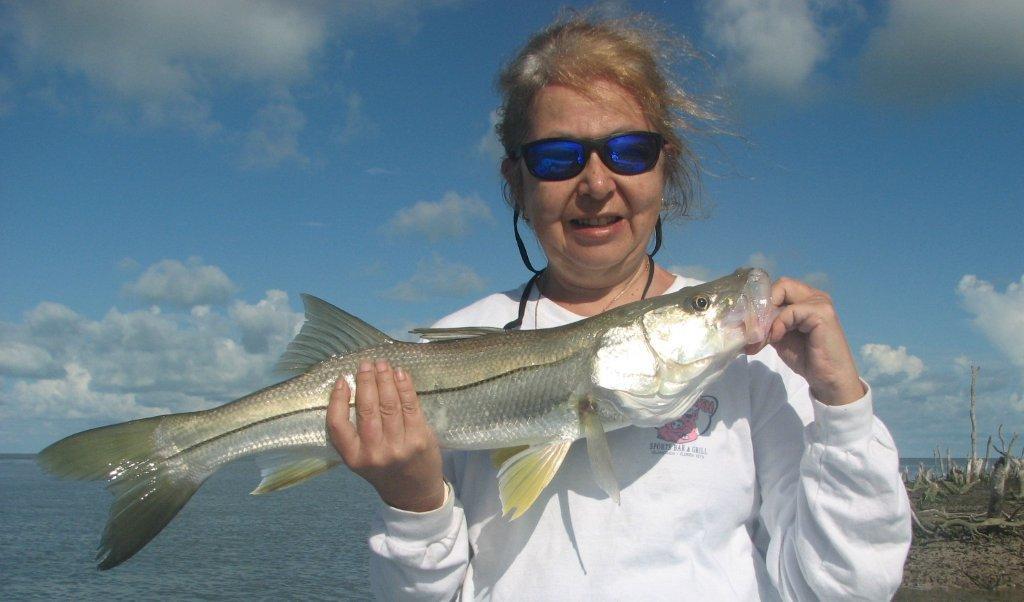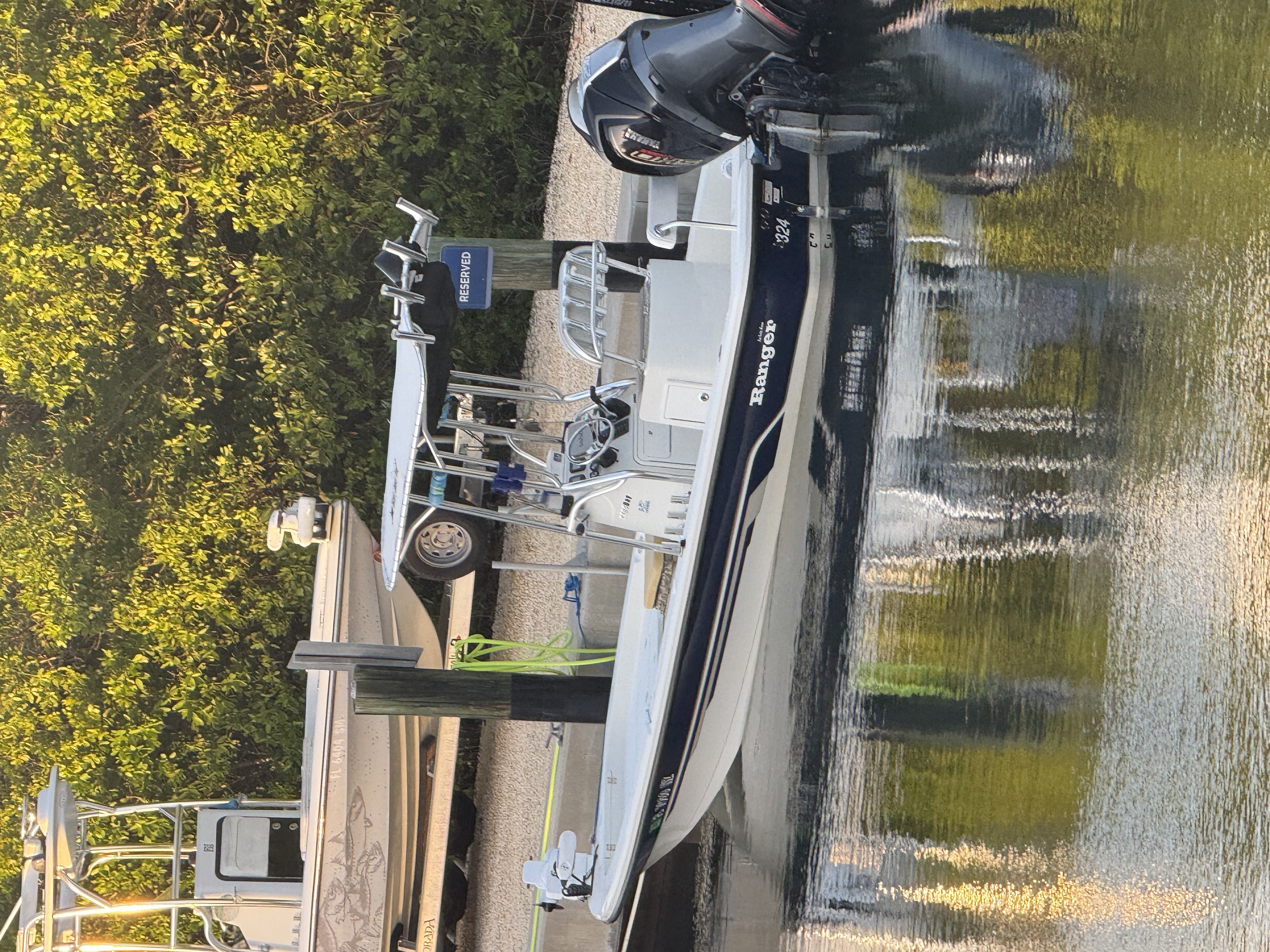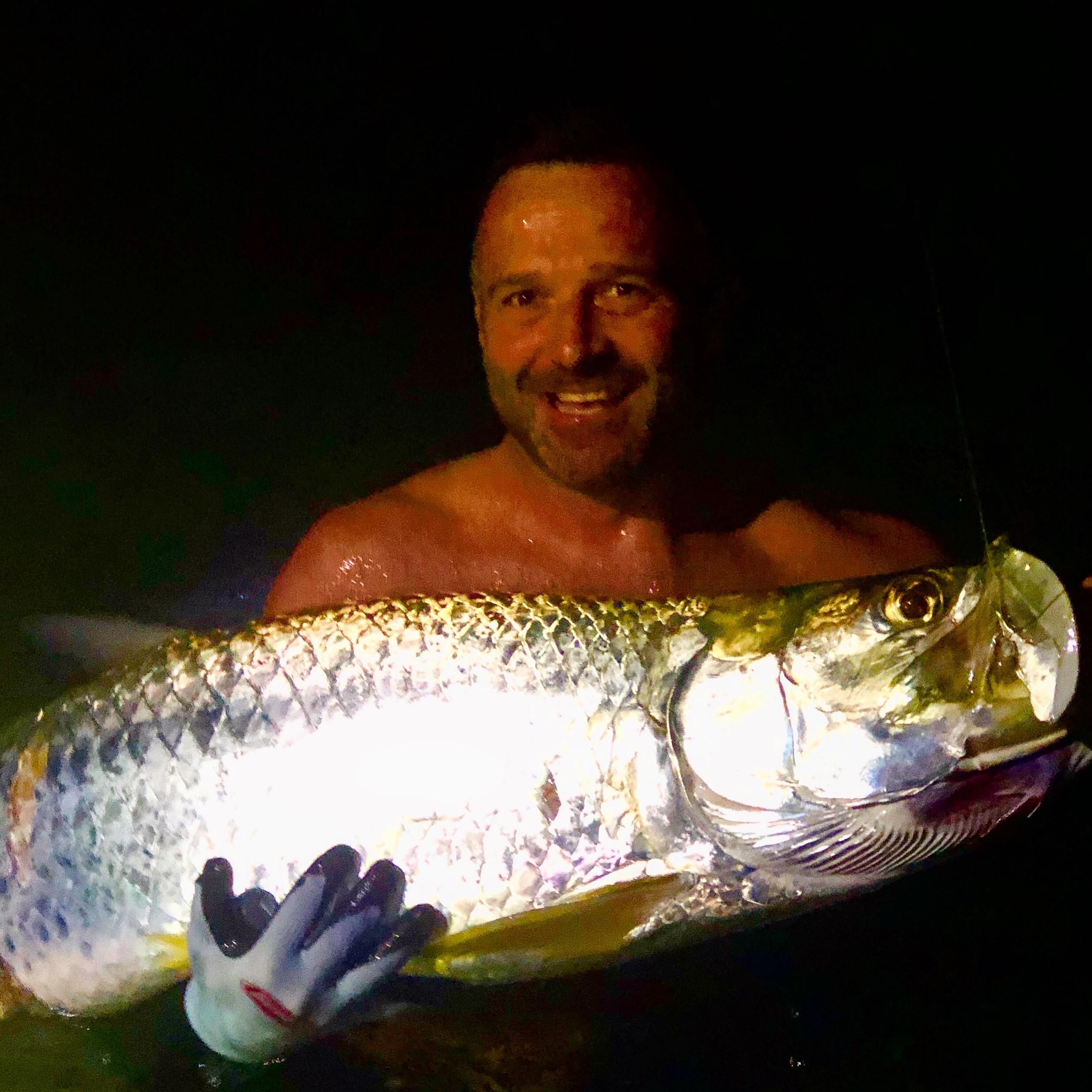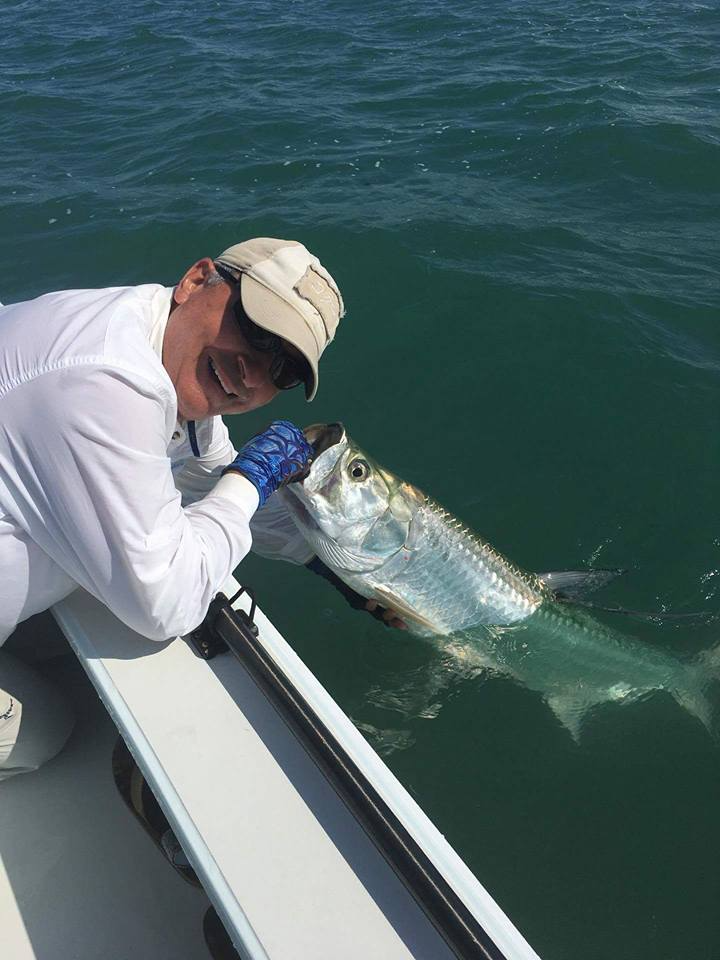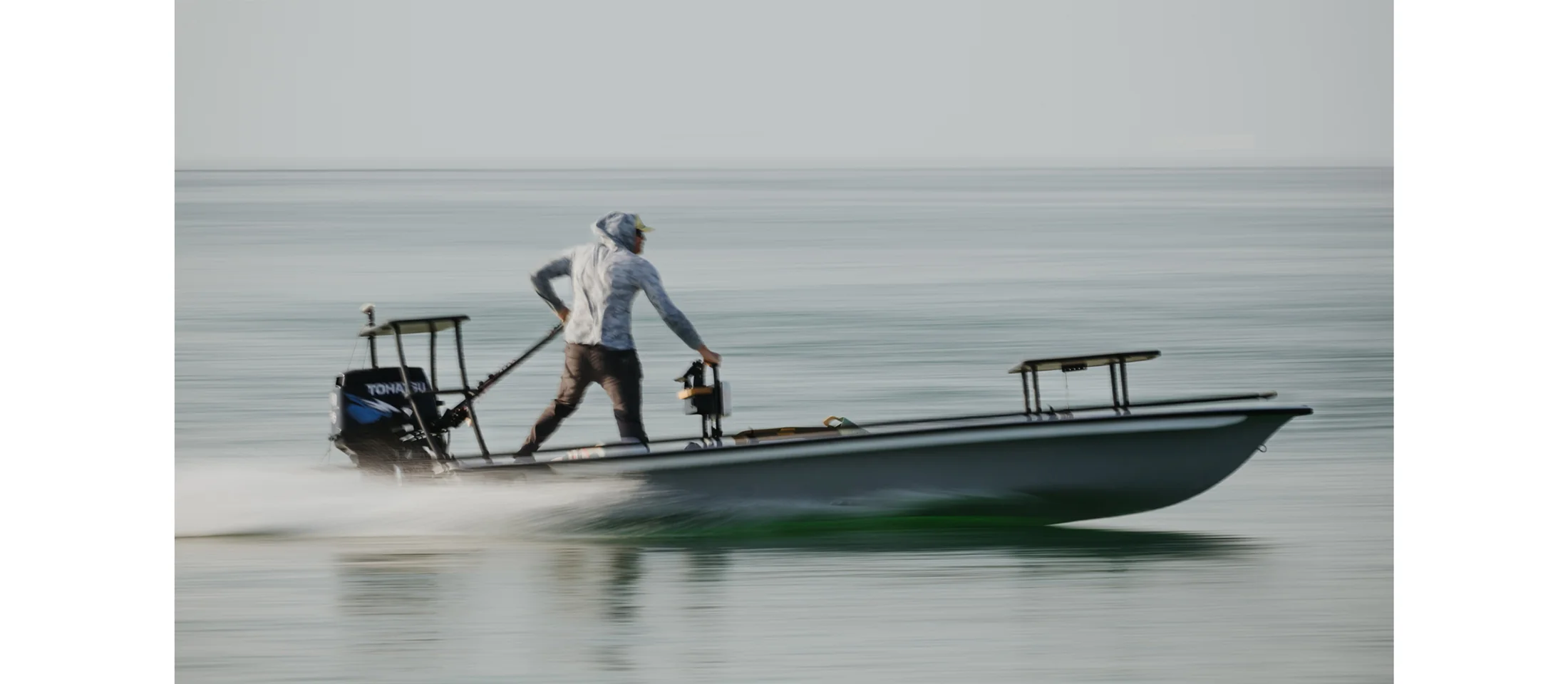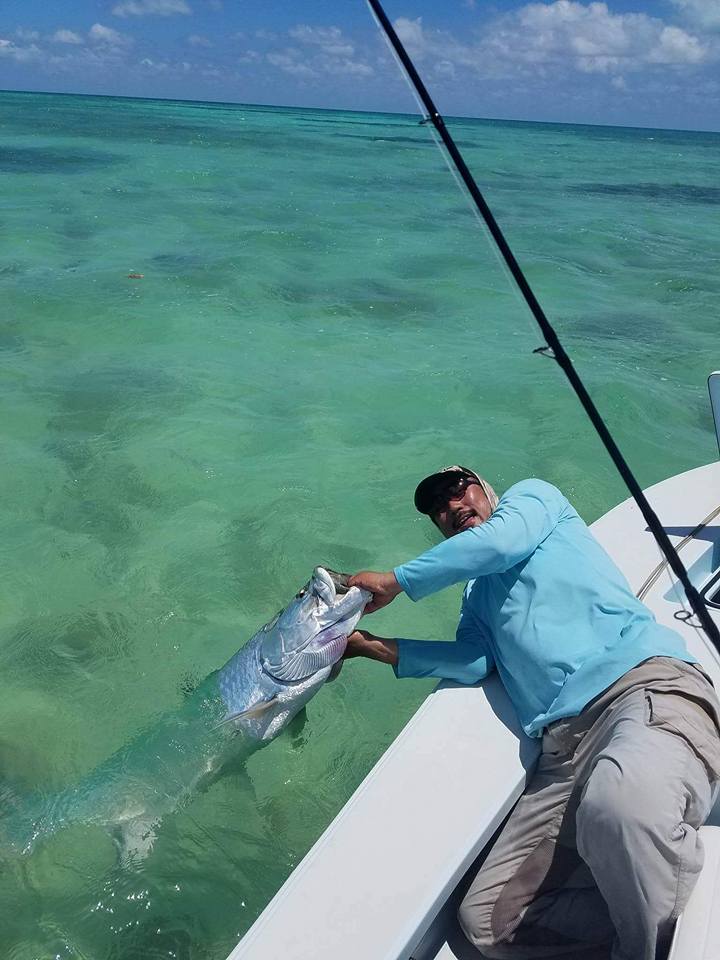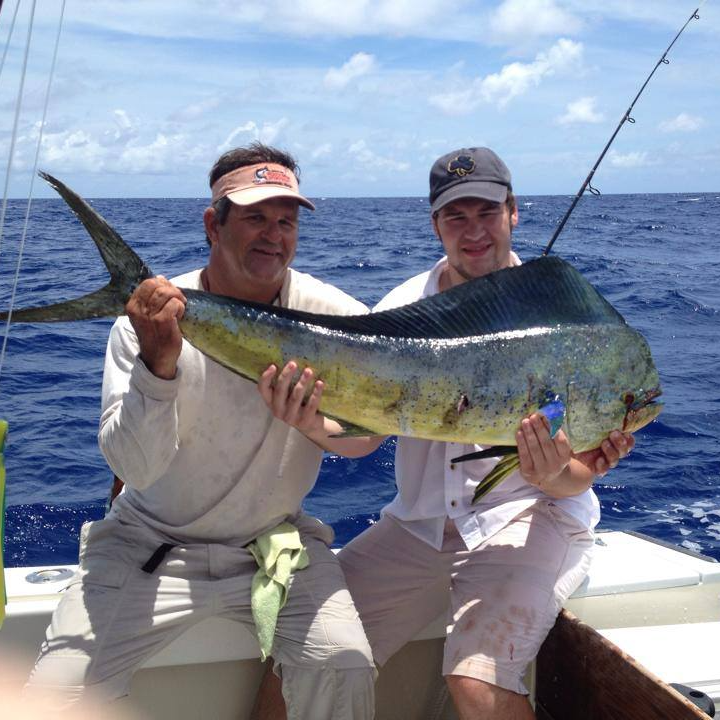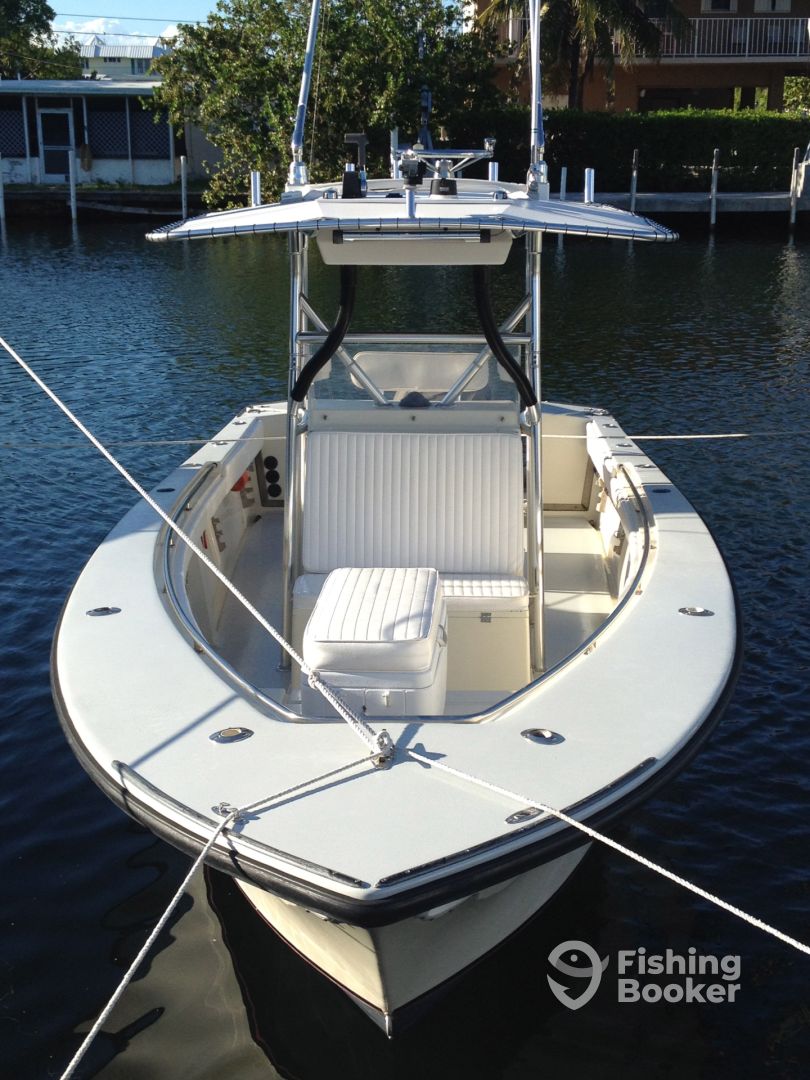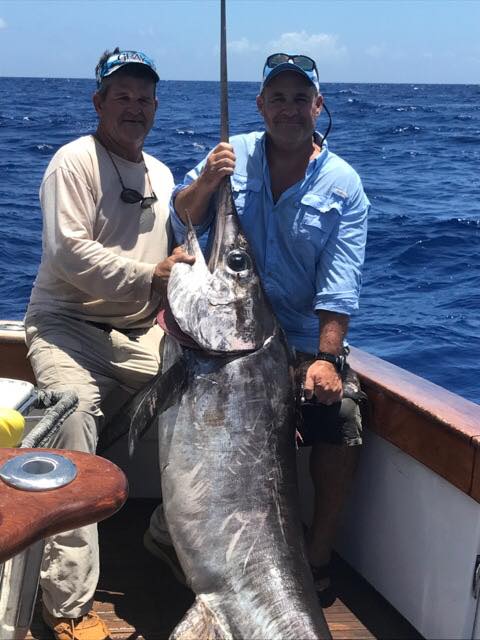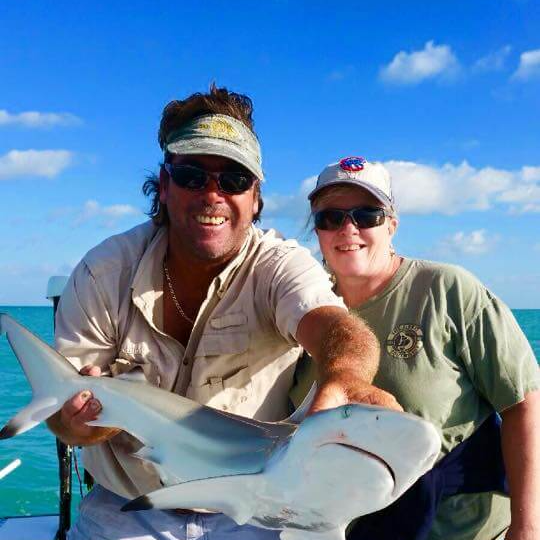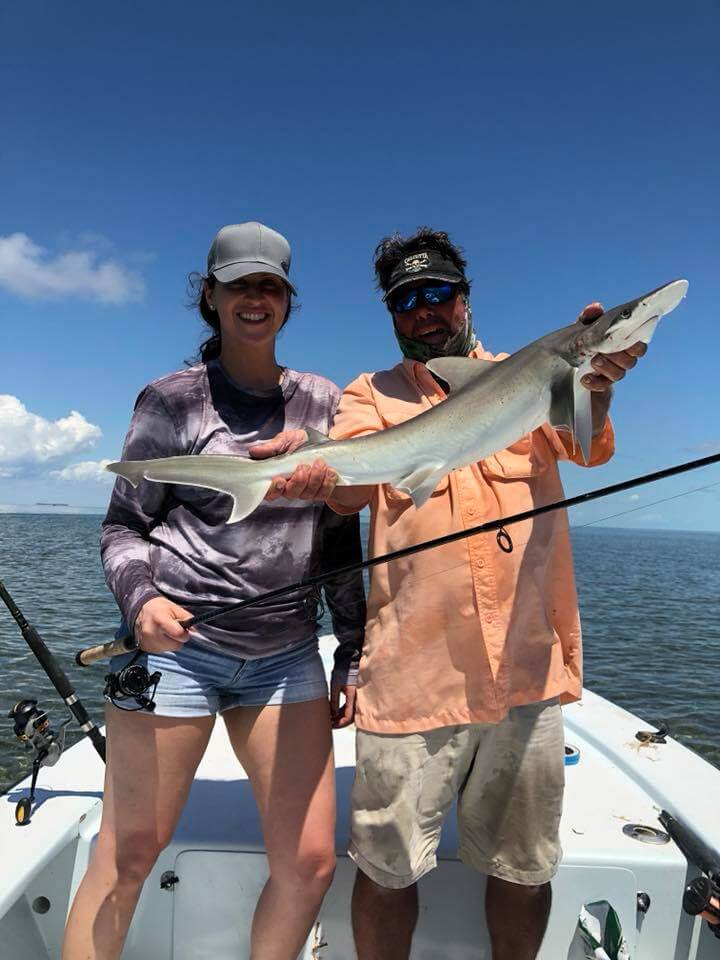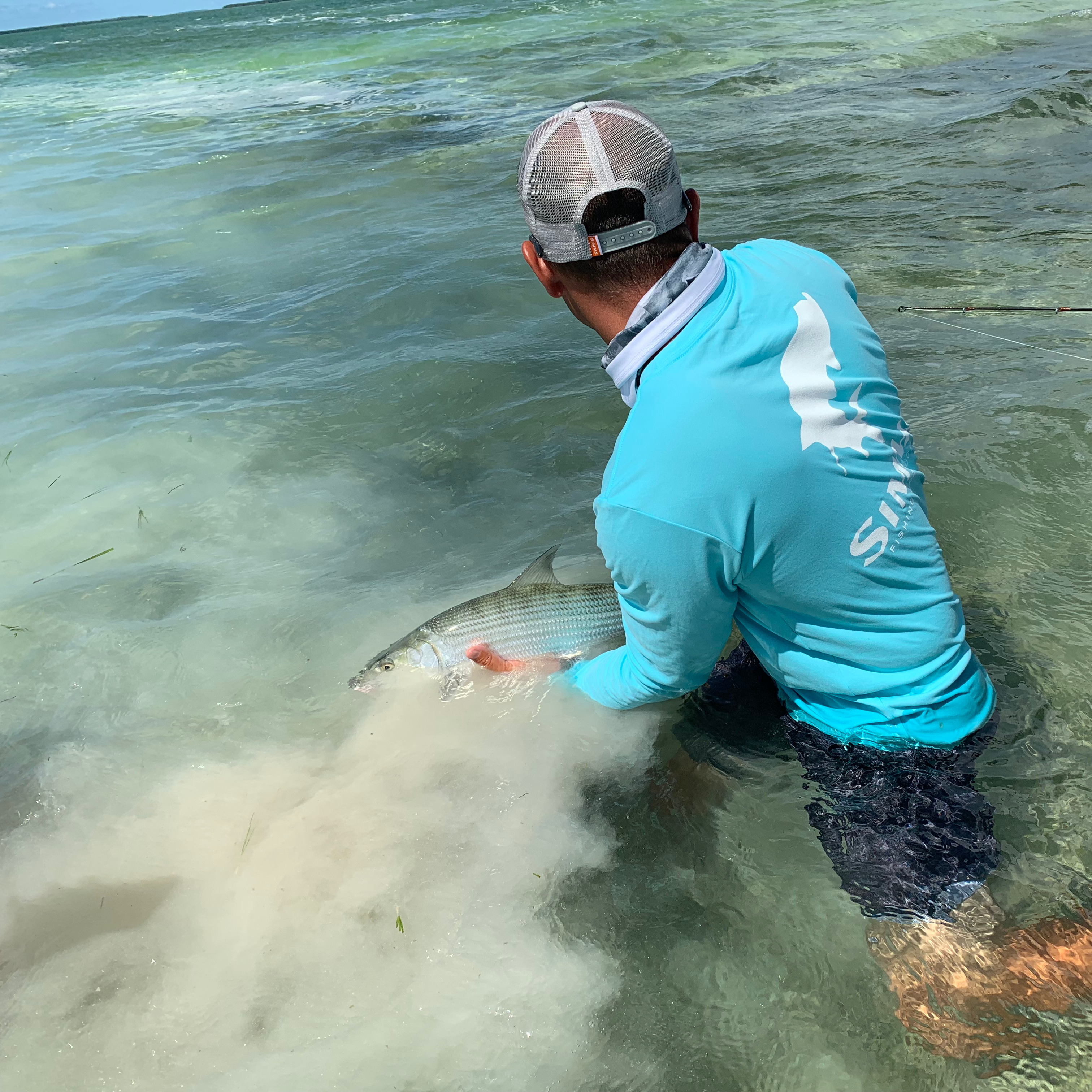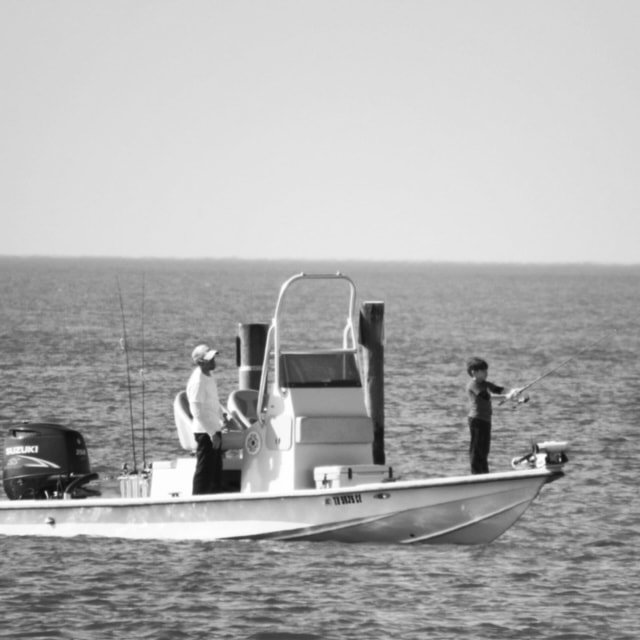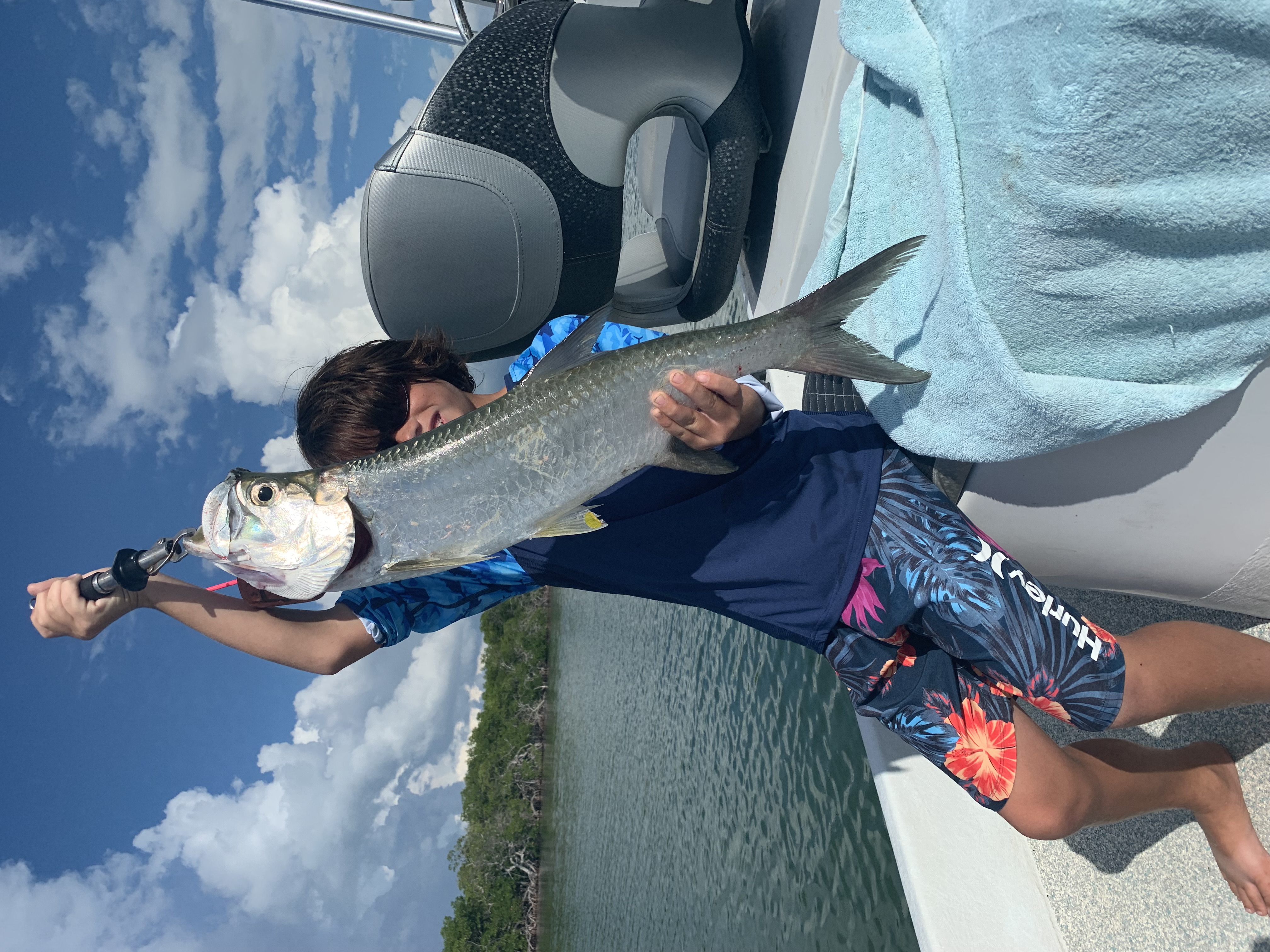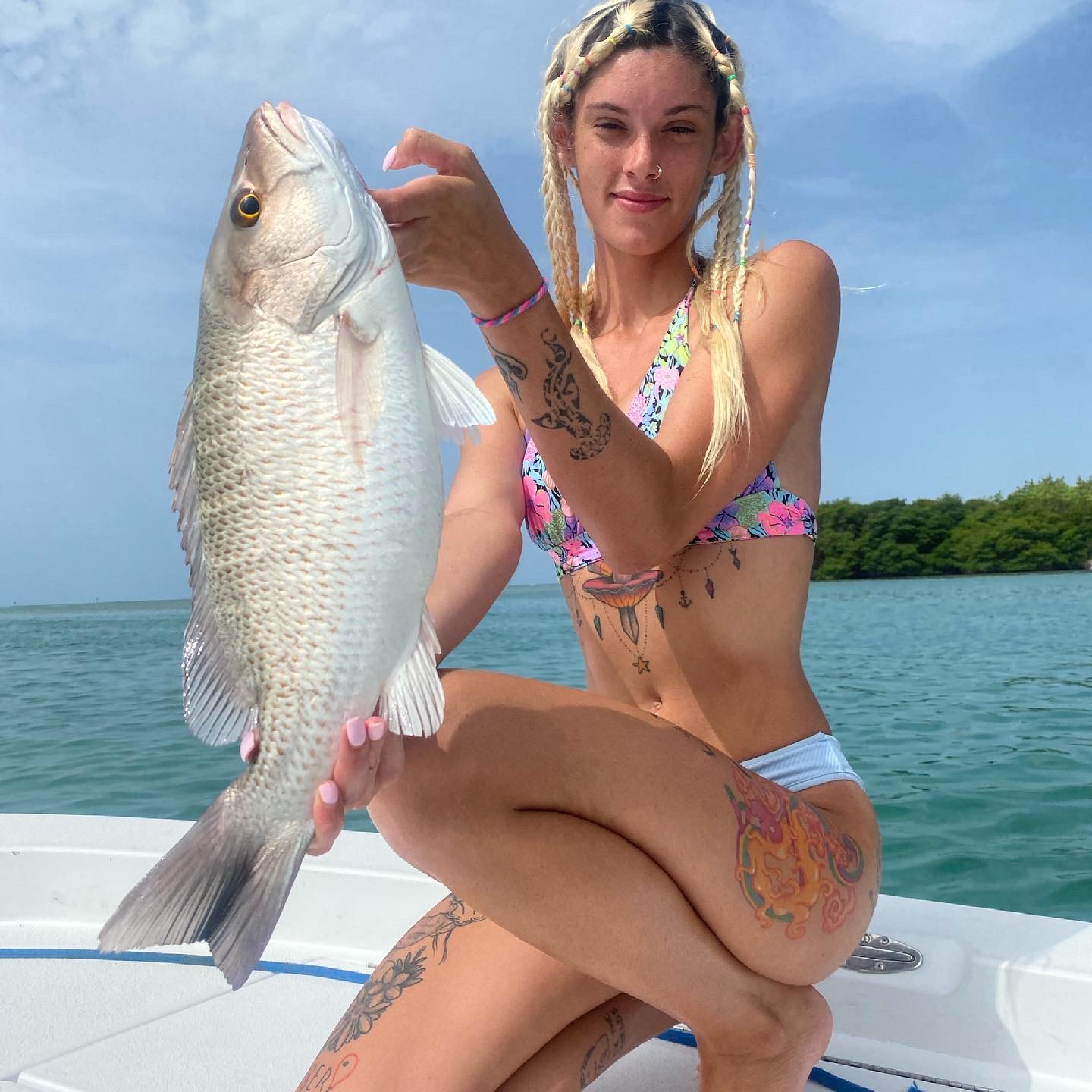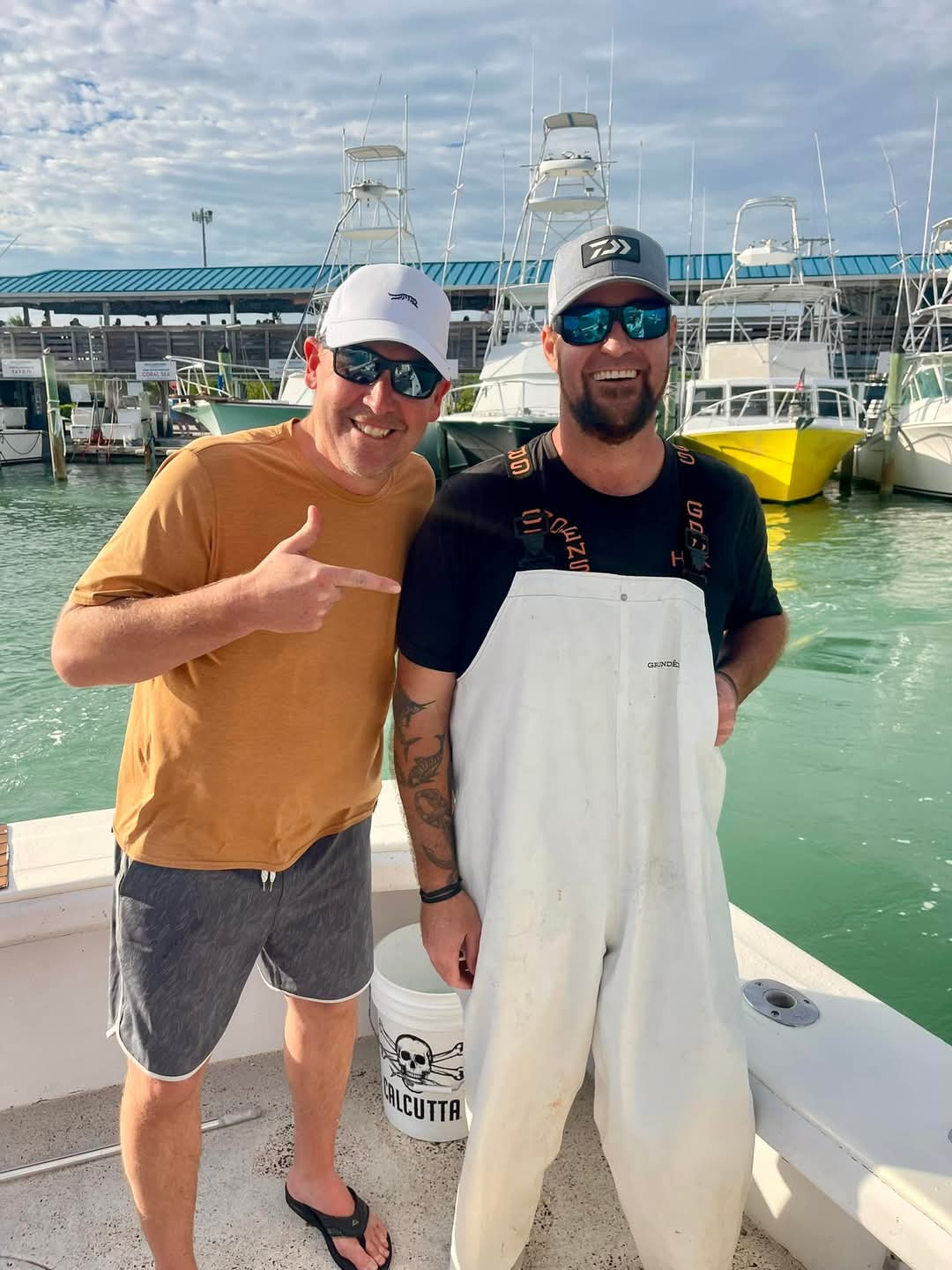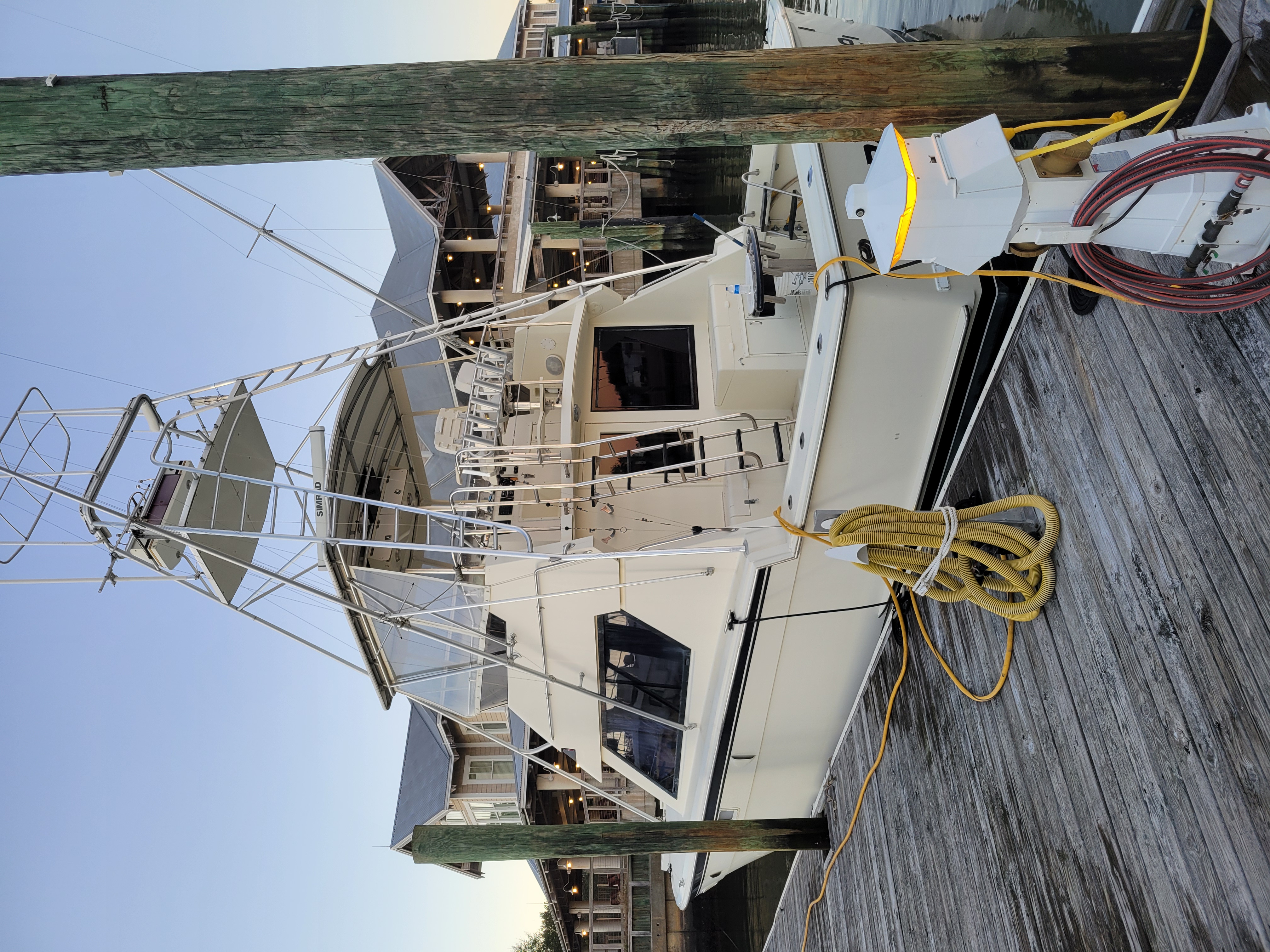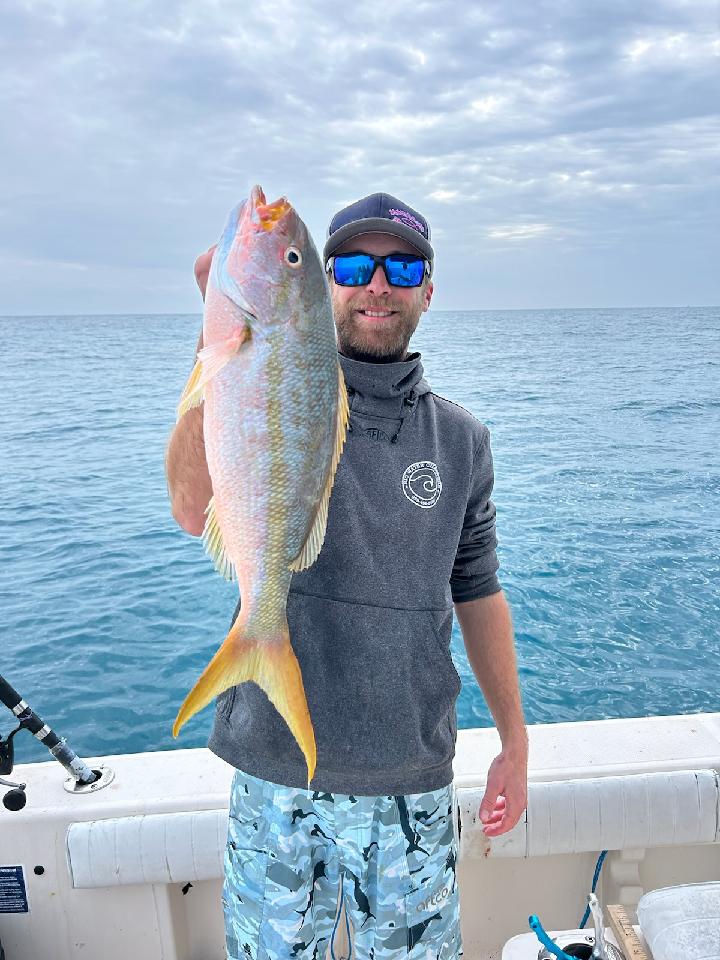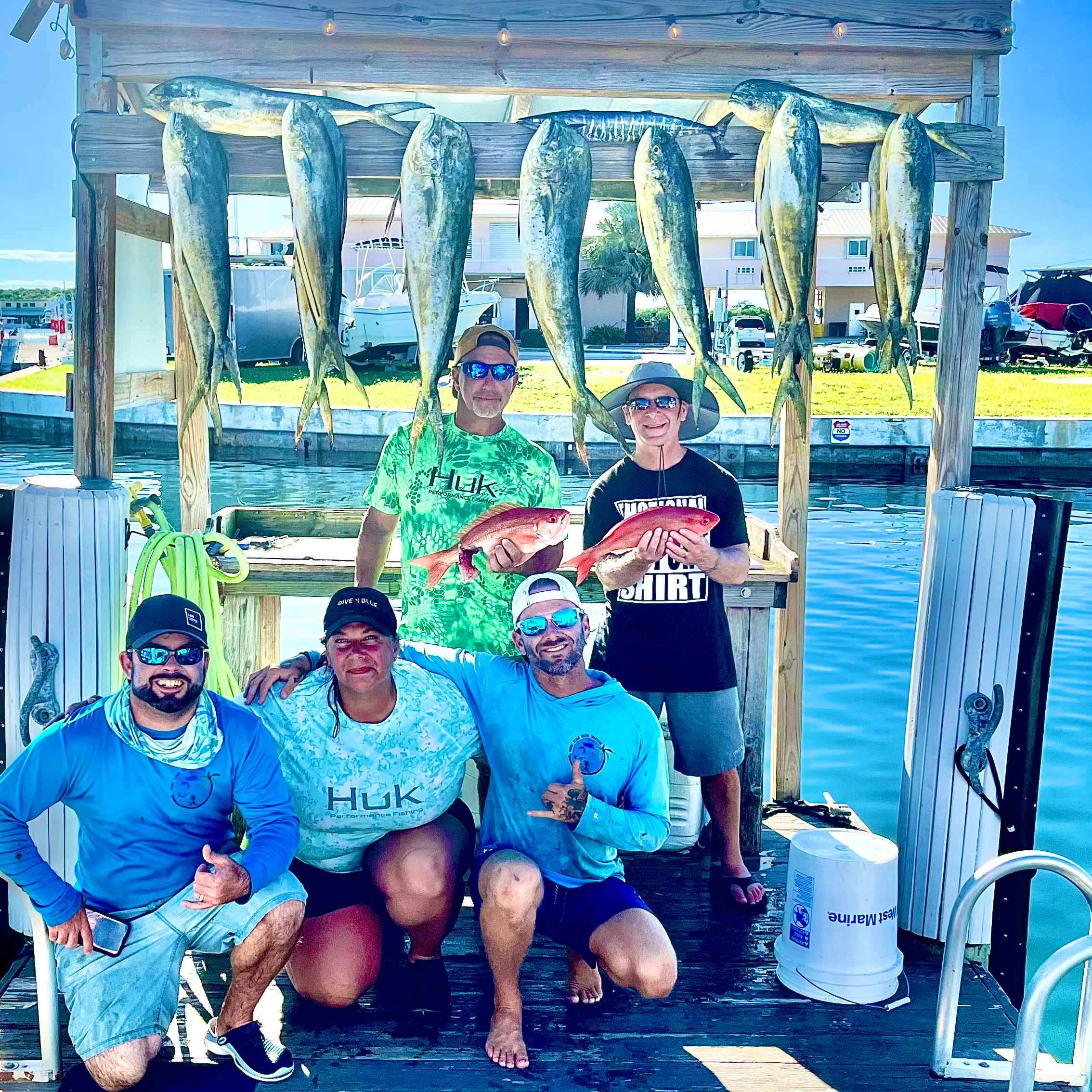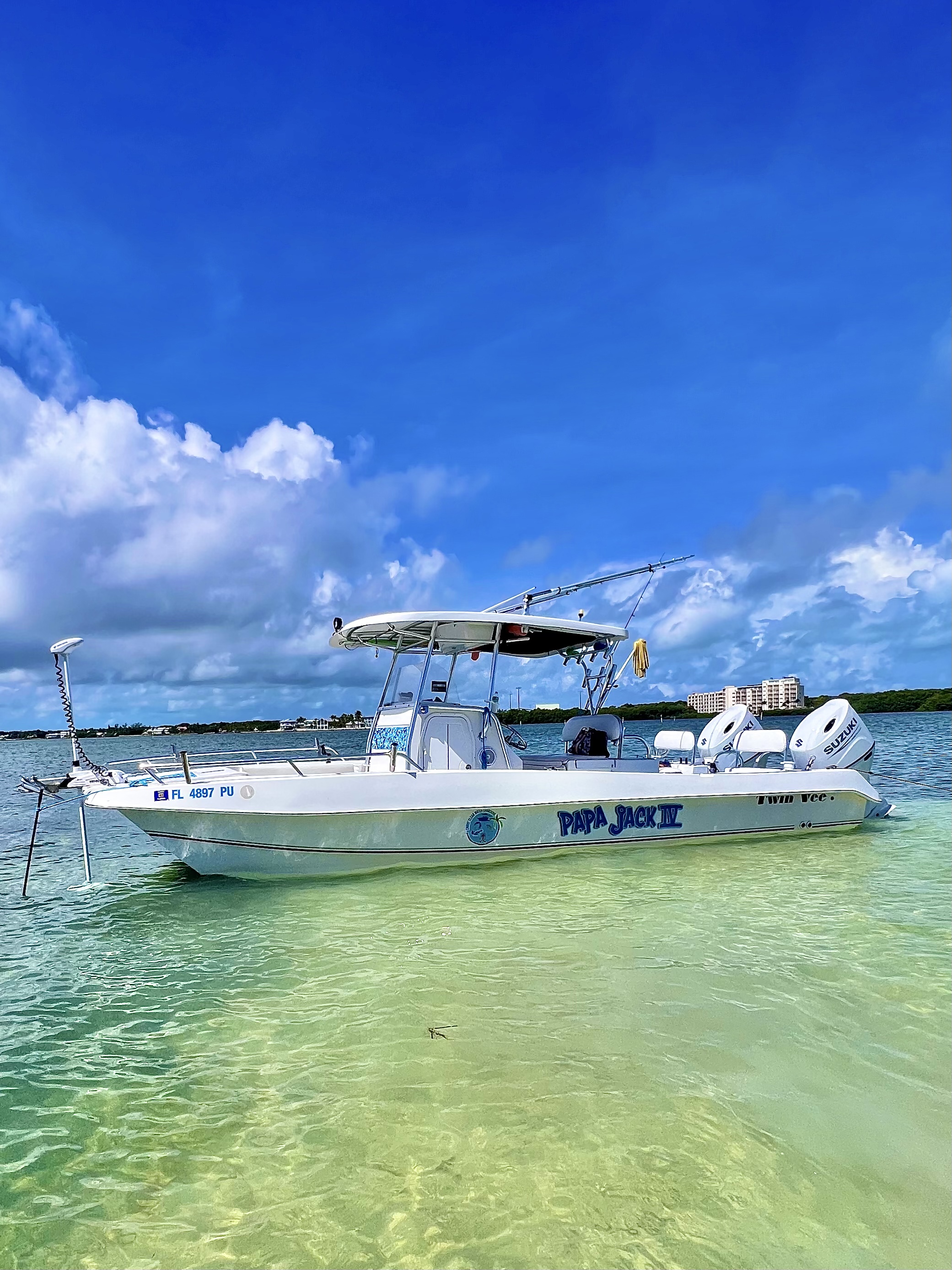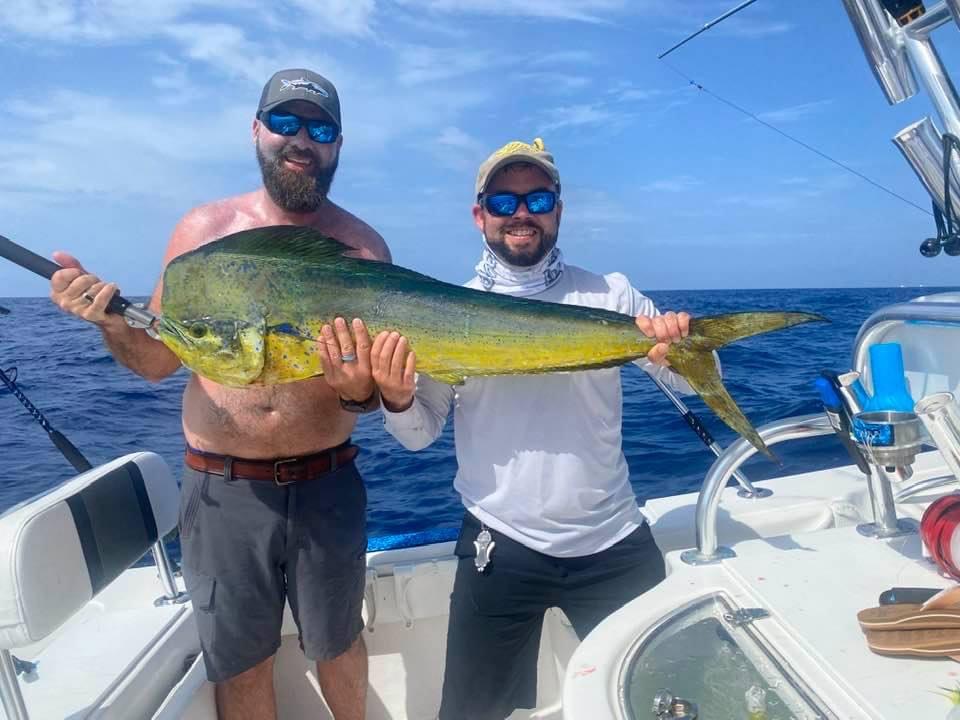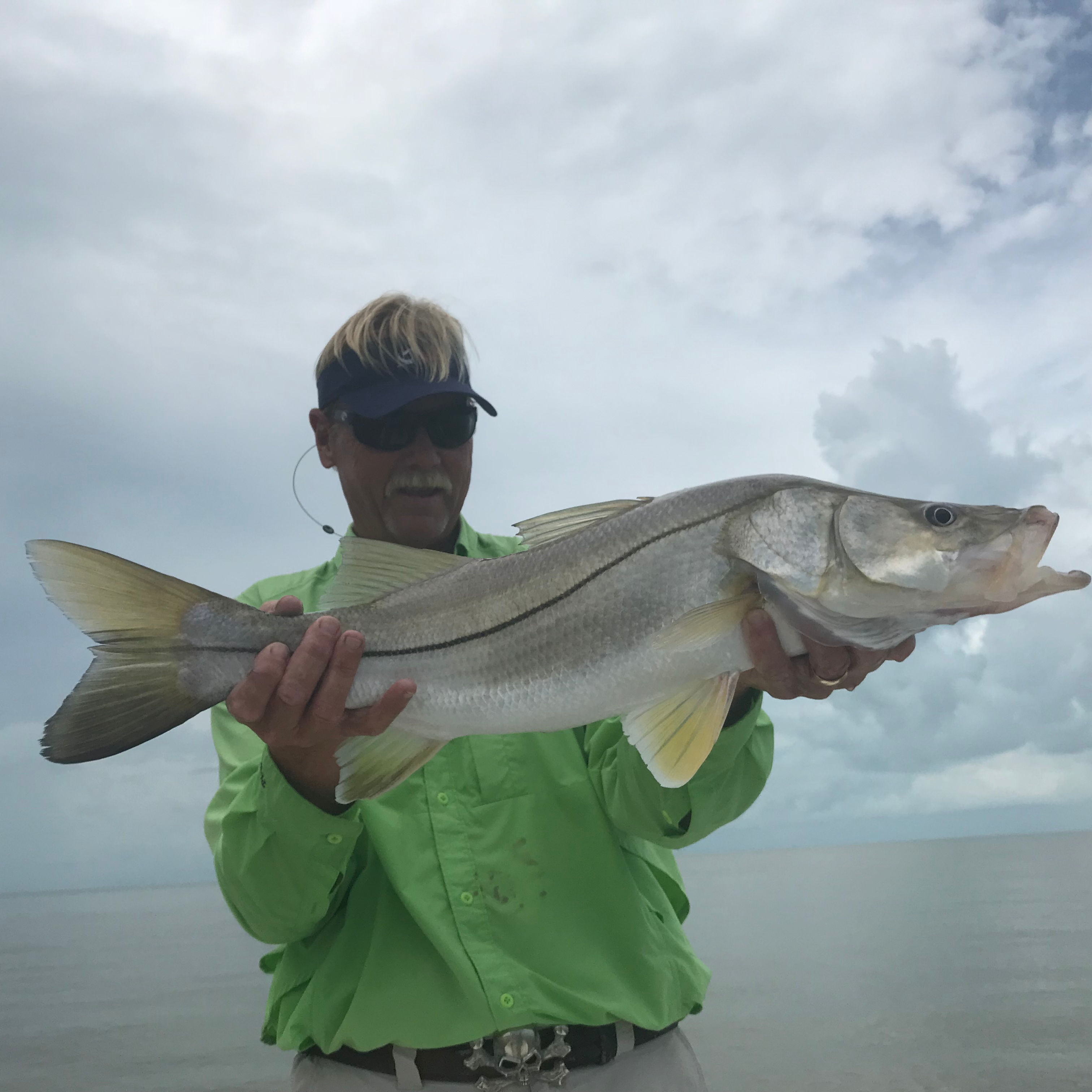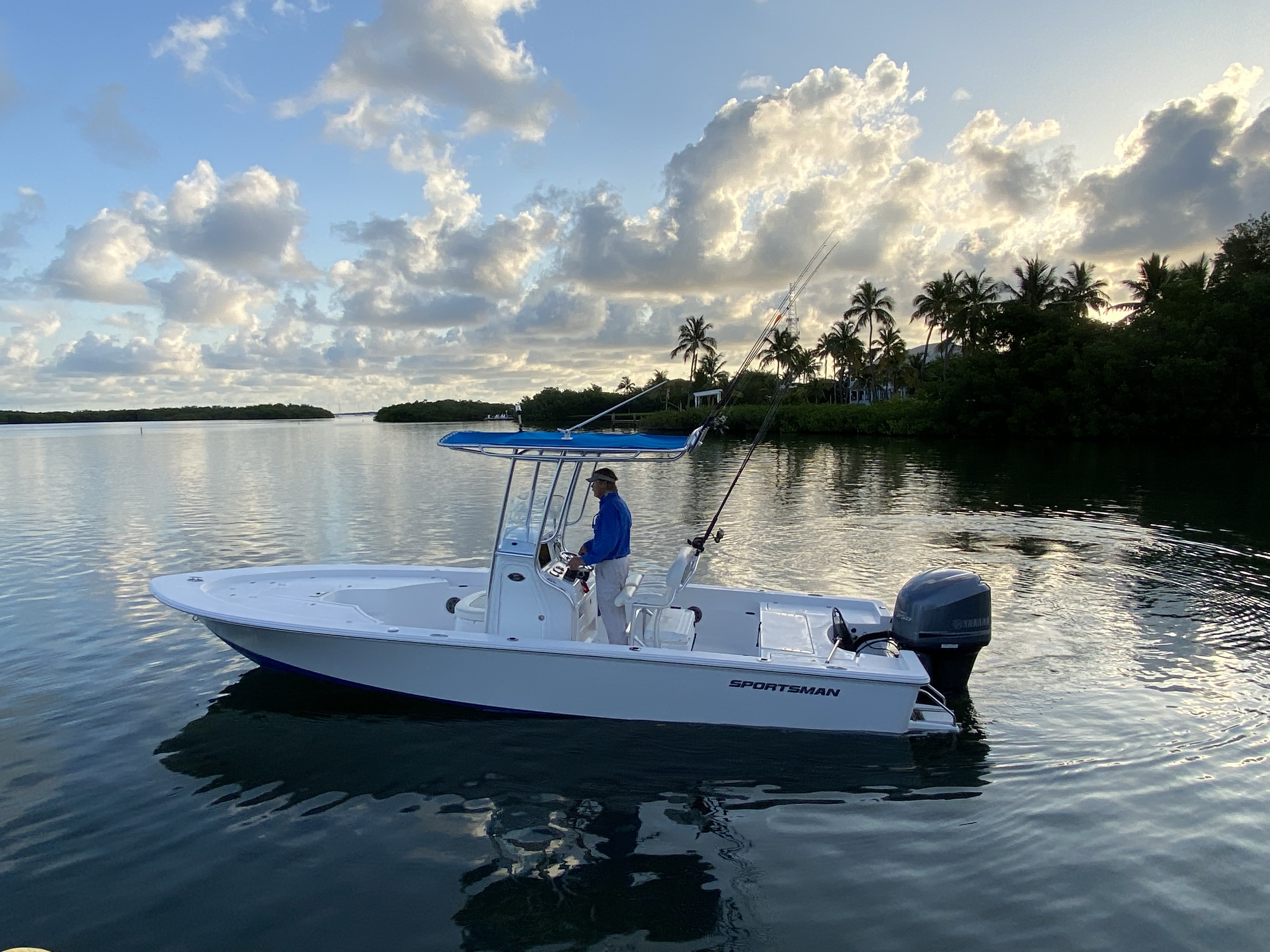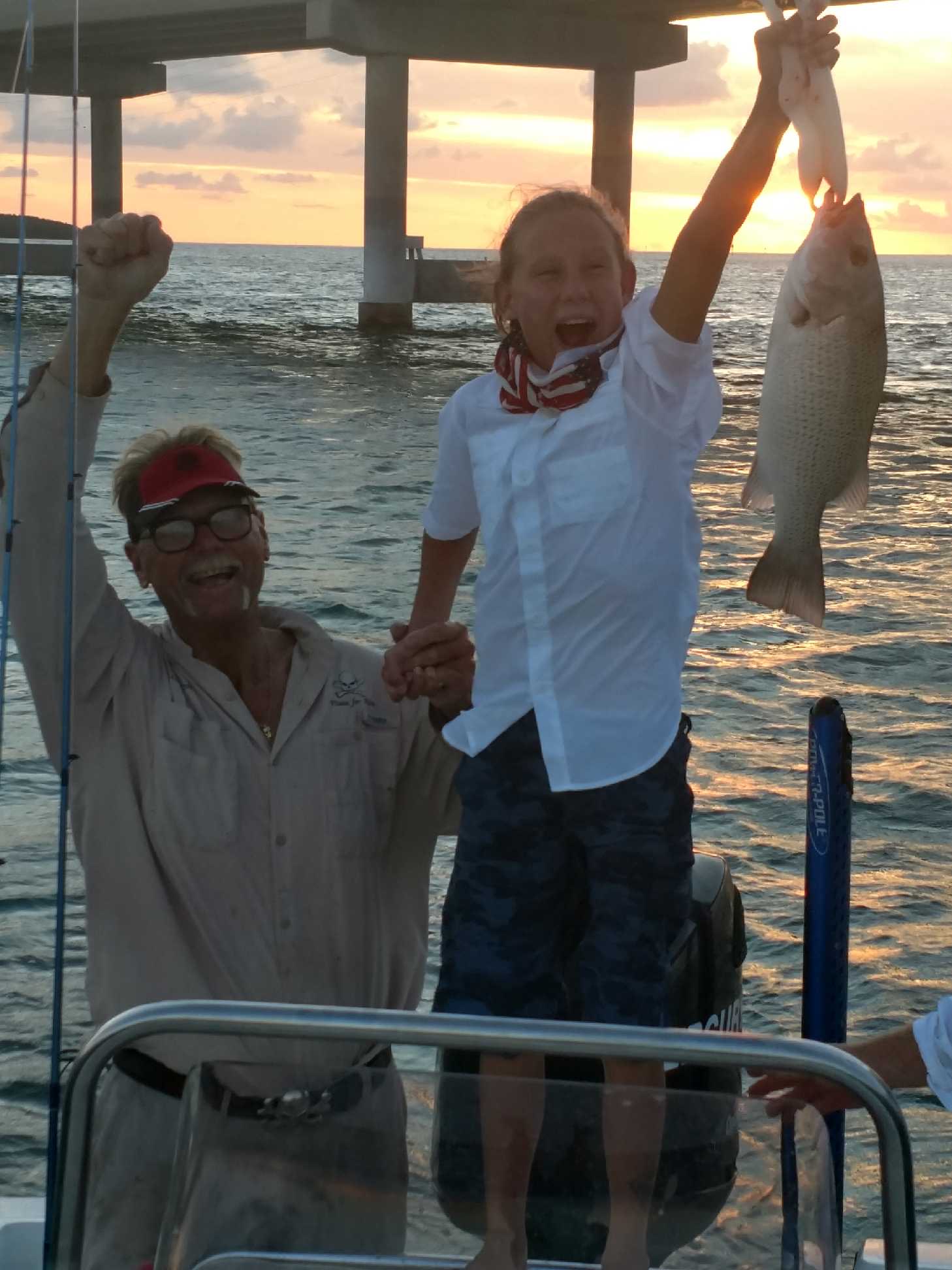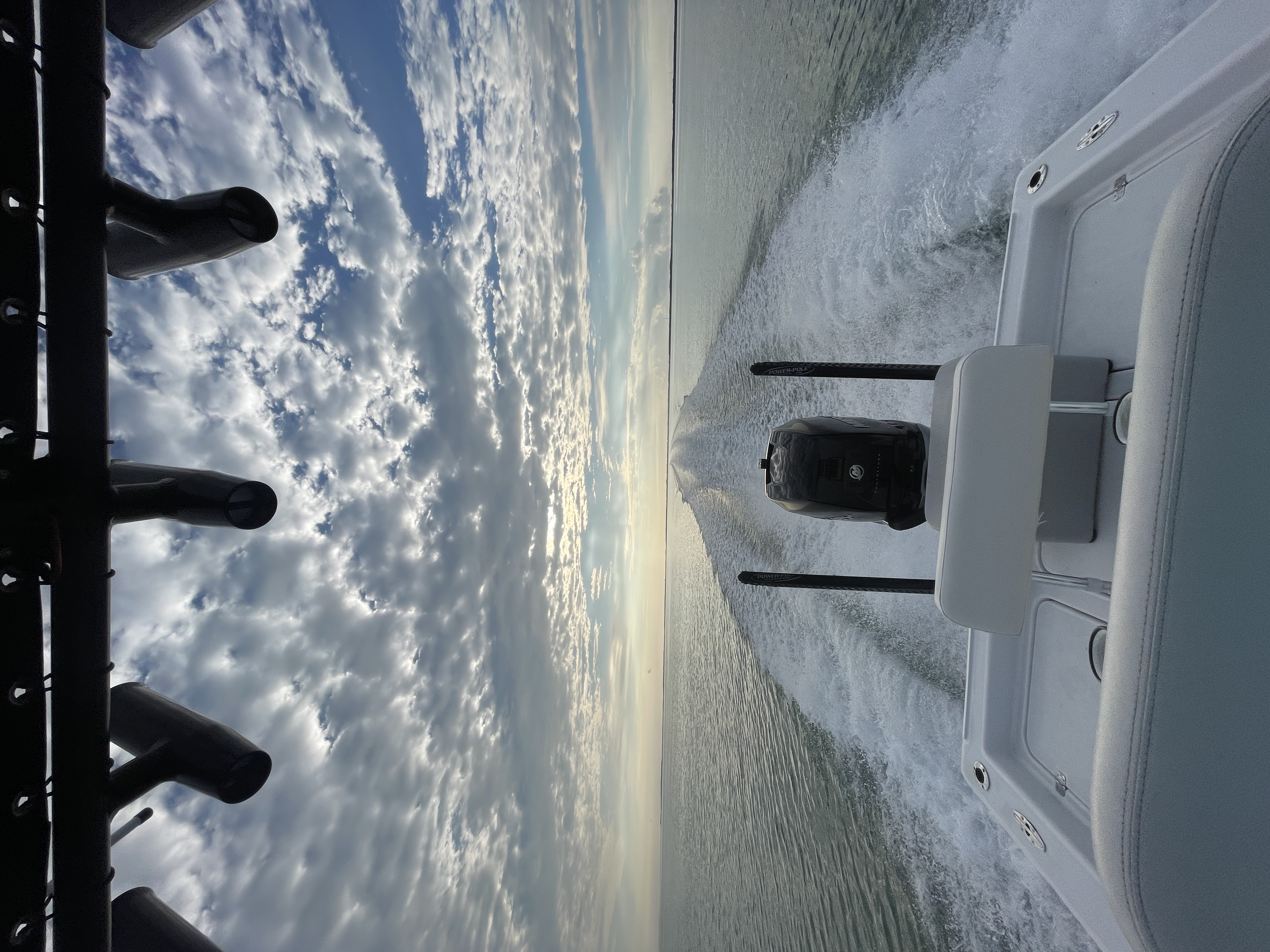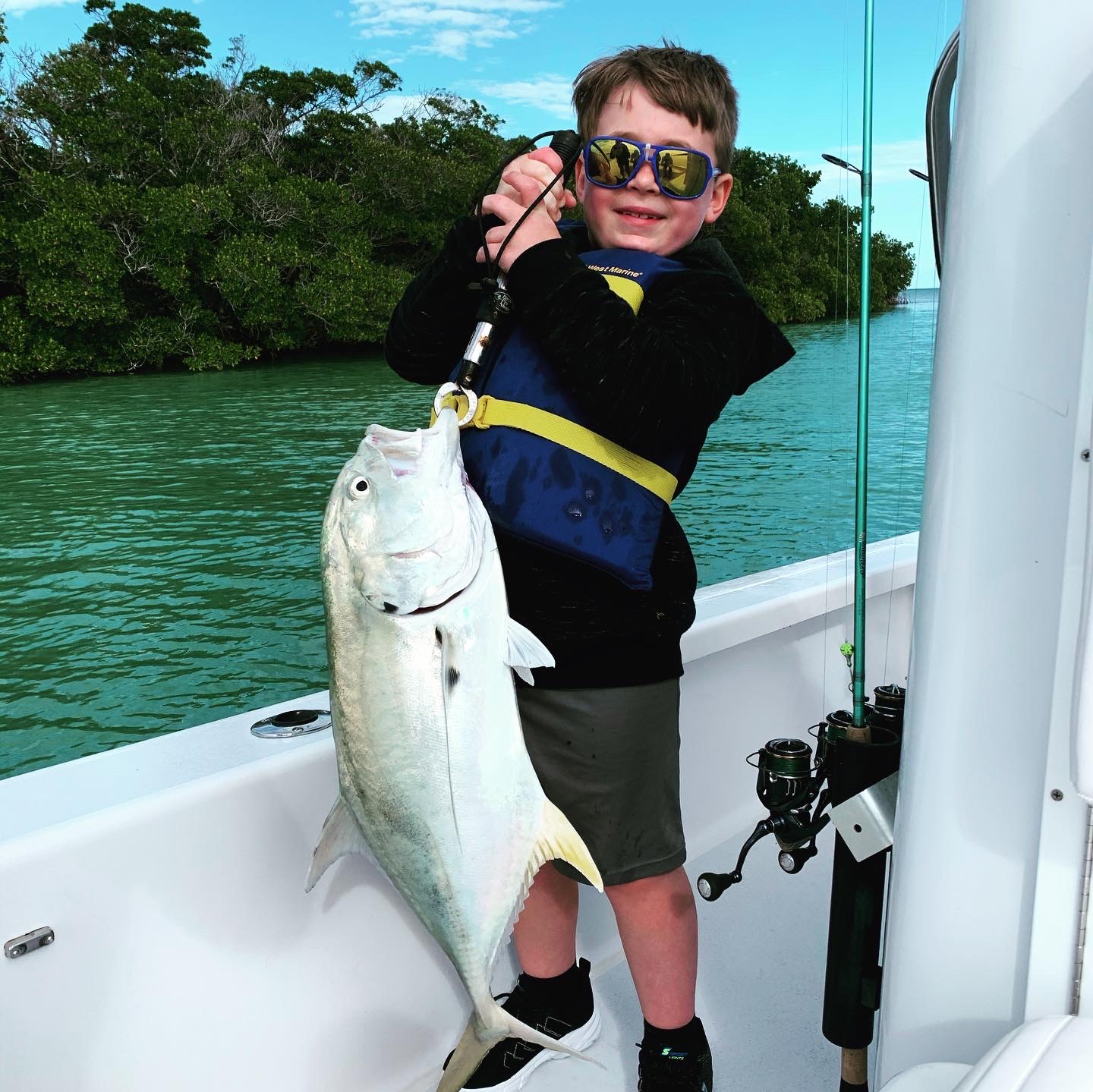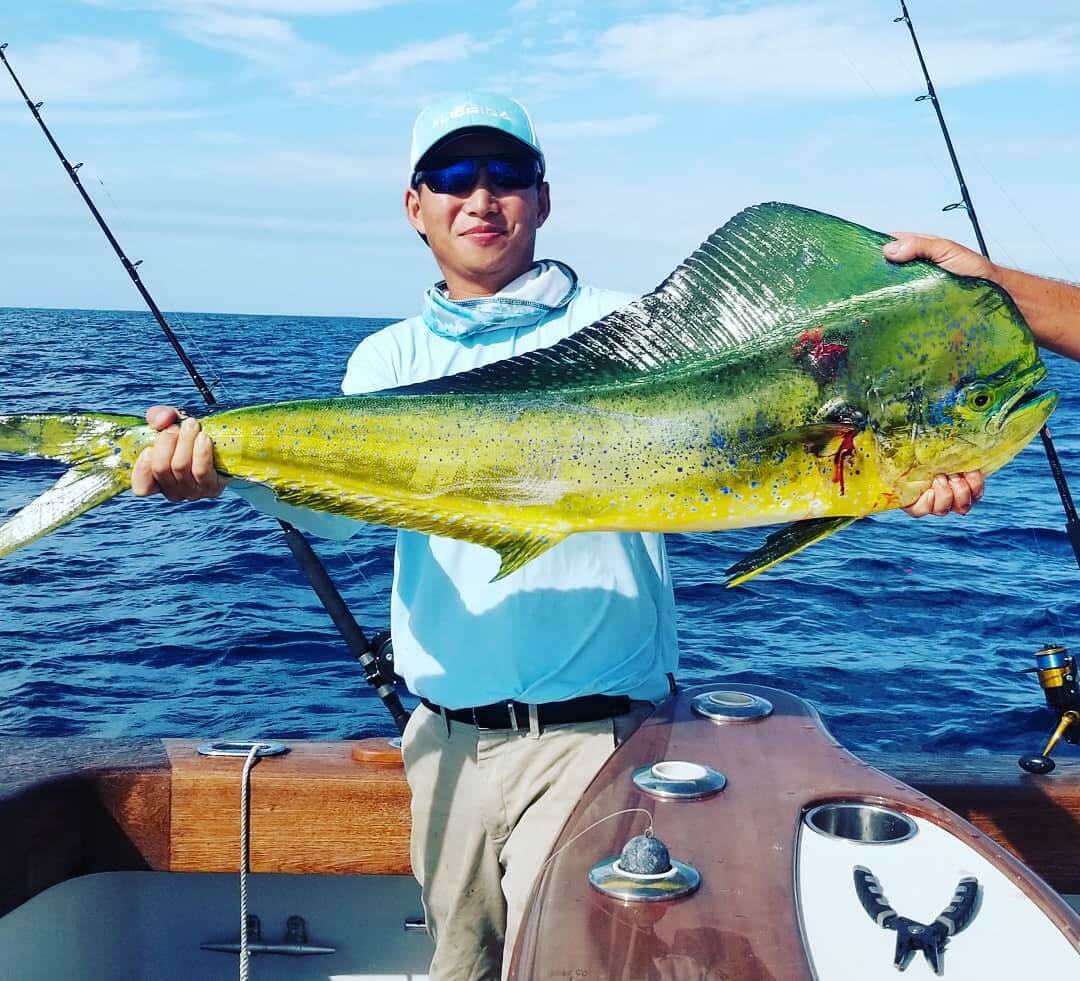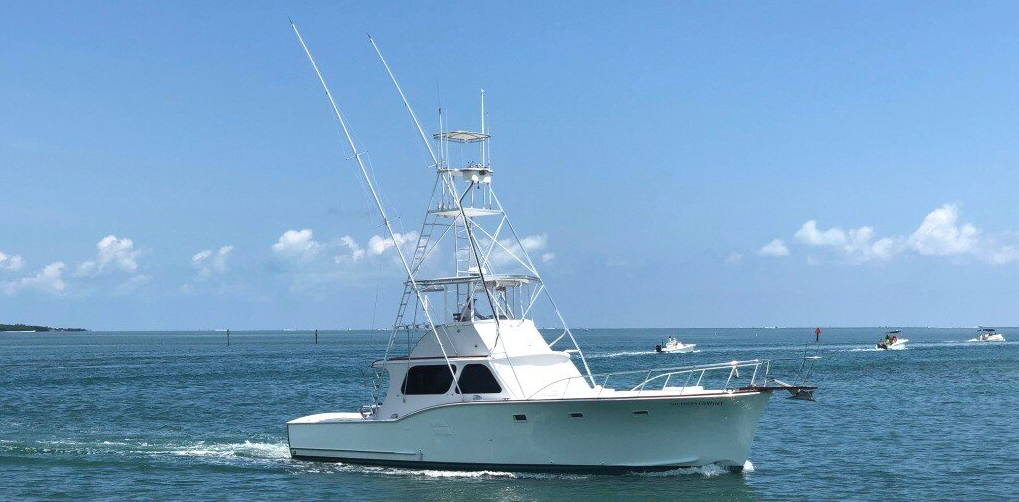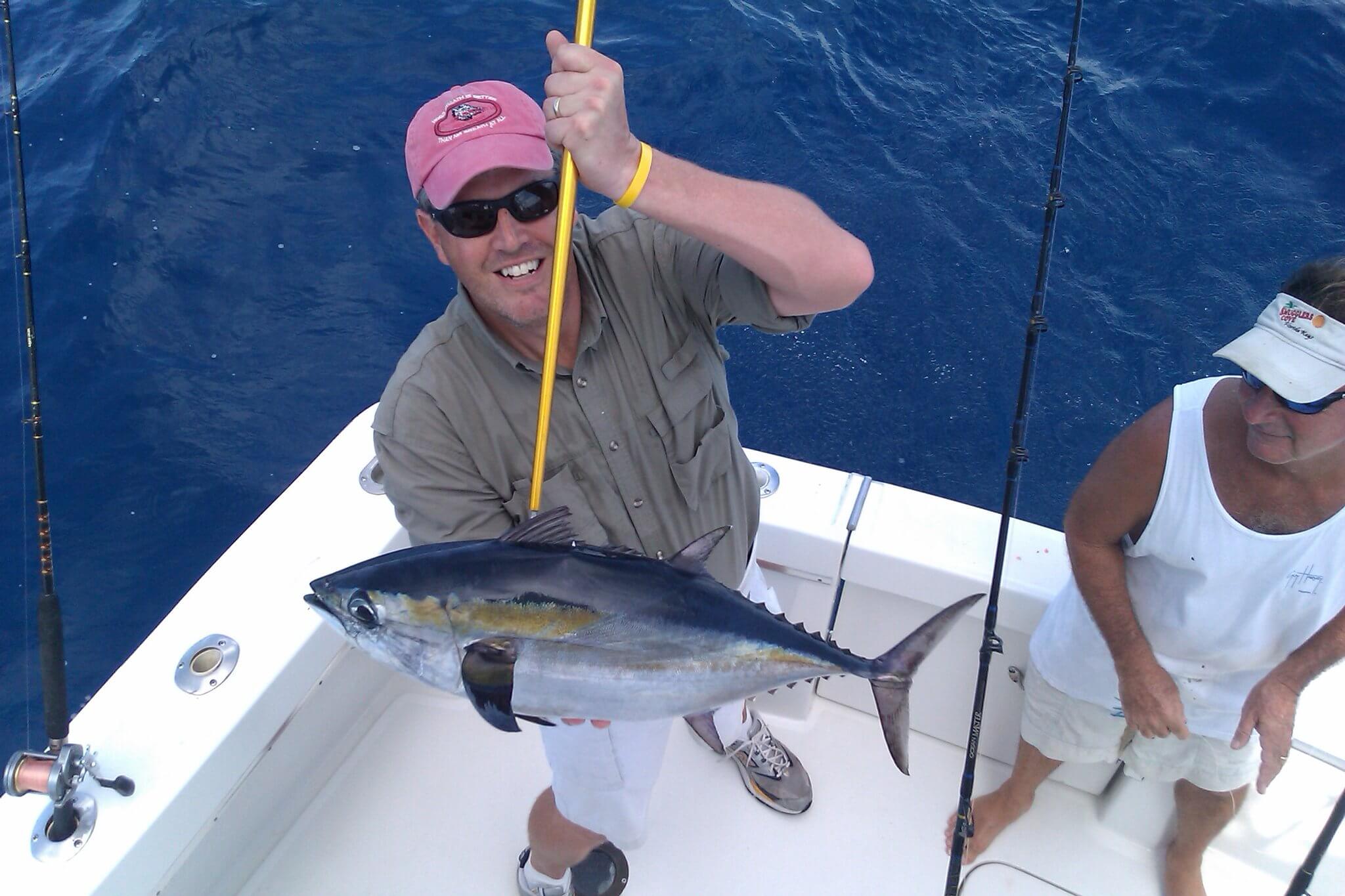Damn Good Guides
Experts Available 24/7
100% Weather Guarantee
Recently Booked Fishing Charters In Islamorada, Fl
Inshore, Flats Fishing in Islamorada
Islamorada Classic Trip
Deep Sea Fishing in Islamorada
Extended Swordfish Trip
Deep Sea, Nearshore Fishing in Islamorada
Full Day Islamorada Trip
Inshore, Jetty Fishing in Islamorada
Barrier Reef Snappers And More
Deep Sea, Nearshore Fishing in Islamorada
Best Islamorada Sportfishing
Deep Sea Fishing in Islamorada
Full Day Mahi Mahi Trip
Top Types of Trips in Islamorada
Top Species for Fishing in Islamorada
“Our Damn Good Guides go above and beyond, and we’ve handpicked every single one. We’re passionate about the outdoors and look forward to getting you out on the trip of a lifetime, every time.”
Jonathan and Attison | Co-founders | Austin, Texas
All Target Species in Islamorada
- Get it while it's HOT!
- This species is in play.
- You might get lucky (as long as things are in-season).
- Couldn't tell ya! (no data)
More Fishing Charters In Islamorada, Fl
Inshore, Deep Sea Fishing in Islamorada
Deep Sea And Barrier Reef Fishing
Inshore, Flats Fishing in Islamorada
Back Country & Flats Fishing
Deep Sea, Nearshore Fishing in Islamorada
Morning Half
Deep Sea Fishing in Islamorada
Mahi And Tuna
Inshore, Nearshore Fishing in Islamorada
Lobster Free Dive Trip
Deep Sea Fishing in Islamorada
8 Hour Full Day
Need a Place to Stay?
Everything to Know About Booking a Fishing Charter in Islamorada
What are the best fishing charters in Islamorada?
The best fishing charters in Islamorada are:
Islamorada Fishing Charter Overview
Islamorada, known as the ""Sportfishing Capital of the World,"" offers a diverse range of fishing opportunities for anglers of all skill levels. With access to gin-clear flats, untouched backcountry, and open ocean, the town boasts a variety of fish species, including Bonefish, Tarpon, Permit, Snook, Redfish, Snappers, Groupers, Hogfish, Amberjack, Barracuda, Mahi Mahi, Wahoo, Tuna, Sailfish, Marlin, and Swordfish.
Inshore charters provide the chance to sight cast for Bonefish, Tarpon, and Permit on the flats or cast baits and flies for Snook and Redfish in the backcountry. Bottom fishing for Snappers, Groupers, Hogfish, and more is also available on the reefs. Offshore charters offer the opportunity to troll over deep sea ledges and underwater humps for Mahi Mahi, Wahoo, Tuna, and Billfish.
Fishing licenses are included on all saltwater charters in Florida, and it's important to note that certain species can only be caught at certain times of the year. Anglers should consult with their captain for the most up-to-date information on closed seasons and limits. Additionally, Islamorada hosts several tournaments throughout the year, including the Islamorada Sailfish Tournament and Cheeca Lodge Tarpon Tournament, providing both serious competition and family-friendly events.
Islamorada Inshore Fishing Charters
As far as inshore fishing is concerned, you'd be hard pressed to find a find a better destination. The little slice of inshore heaven situated between the tip of Florida and the island has some of the best backcountry fishing on the planet. Islands, sandbars and flats divide countless basins and bays.
The backcountry bite is on year round. The weather here rarely gets below 60 degrees, which means plenty of inshore gamefish spend their winters feeding in the warm waters. In addition to your classic inshore denizens like Redfish, Speckled Trout, and Snook, these waters hold bucket list species like few places on earth. Sight fishing for Bonefish and Permit in the flats is the experience of a lifetime, especially on the fly.
Islamorada is a major stop on the Tarpon migration down the east coast and around the gulf. They pretty much hang out here year round. You would be hard pressed to find a better place to catch The Silver King. From late February through early November, schools of Tarpon make the backcountry bays and basins their feeding grounds. While not ideal, they can still be caught in the winter months - just imagine what it's like when the water's warm.
Islamorada Fly Fishing
For the fly angler, it just doesn't get better than Islamorada. There's no question why fly anglers from all over the world flock here every year. With an army of world-class fly guides at the helm, catching that grand slam on the fly is within reach. While going after Bonefish, Permit, and Tarpon, there's always the option to go after a hard fighting Redfish or Snook just around the corner.
Islamorada Deep Sea Fishing Charters
The action doesn't stop when the water gets deeper. Nearshore, bountiful reefs hold Snapper and Grouper variants year round, with shots at exotics like African Pompano and Hogfish. Red snapper fishing season in Islamorada typically opens in early June and runs through mid-August. The exact dates of the season may vary from year to year and are subject to change based on federal regulations and fishing quotas. Stay up to date on the 2023 red snapper season here. Filling up the freezer with delicious fish fillets has never been easier.
Further offshore, flybridge sportfishers and center consoles troll, deep trop, and kite fish for everything under the sun. The deepwater swordfish fishing is excellent here, arguably the best in the world. Bluewater pelagics like Mahi-Mahi, Sailfish, Blue Marlin, and Wahoo are always biting on the longer offshore trips.
View All Islamorada Deep Sea Fishing Charters
Popular Types of Fishing In Islamorada
Islamorada fishing charters offer a variety of options for anglers of all levels. The most common types of fishing charters in Islamorada include offshore, backcountry, and reef fishing.
Offshore fishing charters take you out to the deep waters of the Gulf Stream, where you can catch big game fish like sailfish, marlin, and tuna. Backcountry fishing charters take you to the shallow waters of the Florida Bay, where you can catch snook, redfish, and tarpon. Reef fishing charters take you to the coral reefs off the coast of Islamorada, where you can catch snapper, grouper, and hogfish.
Some of the most common fish to catch in Islamorada include mahi-mahi, wahoo, kingfish, and yellowtail snapper. Depending on the type of fishing charter you choose, you may also have the opportunity to catch bonefish, permit, and barracuda.
Islamorada fishing charters often depart from landmarks like Bud N' Mary's Marina and Robbie's Marina. These marinas are located in the heart of Islamorada and offer easy access to some of the best fishing spots in the area.
The Best Places To Fish In Islamorada
Islamorada, Florida is known as the ""Sportfishing Capital of the World"" and for good reason. With its crystal-clear waters and abundant marine life, it's no wonder that anglers from all over the world flock to this tropical paradise. Here are some of the best places to fish in Islamorada, Florida, whether you're going on a fishing charter or casting from shore:
1. The Islamorada Humps - These underwater mountains are a popular spot for fishing charters, as they attract a variety of game fish such as tuna, mahi-mahi, and sailfish.
2. The Florida Bay - This shallow bay is home to a variety of fish species, including bonefish, tarpon, and redfish. It's a great spot for both fly fishing and spin fishing.
3. The Backcountry - This area of the Florida Keys is a maze of mangrove islands, shallow flats, and winding channels. It's a prime spot for fishing charters, as it's home to a variety of game fish such as snook, redfish, and trout.
4. The Gulf of Mexico - This vast body of water is home to a variety of fish species, including grouper, snapper, and kingfish. It's a great spot for fishing charters, as the waters are calm and the fishing is excellent.
5. The Atlantic Ocean - The waters off the coast of Islamorada are teeming with game fish such as marlin, sailfish, and wahoo. It's a prime spot for fishing charters, as the deep waters are home to some of the biggest fish in the world.
Other Things To Do In Islamorada
While Islamorada fishing charters are a popular attraction, there are plenty of other things to do in this Florida city. Take a trip to Theater of the Sea, where you can swim with dolphins and sea lions, or visit the History of Diving Museum to learn about the evolution of underwater exploration. For a more active adventure, rent a paddleboard or kayak and explore the crystal-clear waters of the Florida Keys. If you're looking for a relaxing day, head to Anne's Beach, a secluded spot with calm waters and soft sand. And don't forget to indulge in some fresh seafood at one of the many local restaurants.
Recent Reviews
Top Targeted Fishing Species in Islamorada
- African Pompano
- Almaco Jack
- Amberjack
- Barracuda
- Black Drum
- Black Grouper
- Blackbelly Rosefish
- Blackfin Tuna
- Blacktip Shark
- Blue Marlin
- Bluefin Tuna
- Bonefish
- Bonito
- Bonnethead Shark
- Bull Shark
- Cero Mackerel
- Cobia
- Cubera Snapper
- False Albacore
- Florida Pompano
- Gag Grouper
- Goliath Grouper
- Hogfish
- Jack Crevalle
- Kingfish
- Ladyfish
- Lane Snapper
- Largemouth Bass
- Lemon Shark
- Lobster
- Mahi Mahi
- Mangrove Snapper
- Mutton Snapper
- Nurse Shark
- Permit
- Queen Snapper
- Red Grouper
- Red Snapper
- Redfish
- Sailfish
- Sheepshead
- Skipjack Tuna
- Snook
- Snowy Grouper
- Spanish Mackerel
- Speckled Trout
- Swordfish
- Tarpon
- Tilefish
- Triggerfish
- Tripletail
- Vermillion Snapper
- Wahoo
- White Marlin
- Yellowtail Amberjack
- Yellowtail Snapper
Top Fishing Techniques in Islamorada
- Artificial Lure Fishing
- Bottom Fishing
- Cut Bait Fishing
- Deep Dropping
- Drift Fishing
- Fly Fishing
- Heavy Tackle Fishing
- Jigging
- Kite Fishing
- Light Tackle Fishing
- Live Bait Fishing
- Sight Casting
- Topwater Fishing
- Trolling
- Wading
Top Types of Tours in Islamorada
Other Featured Cities
- Fishing Charters Near Me
- Austin Fishing Guides
- Biloxi Fishing Charters
- Bradenton Fishing Charters
- Cabo San Lucas Fishing Charters
- Cancun Fishing Charters
- Cape Coral Fishing Charters
- Charleston Fishing Charters
- Clearwater Fishing Charters
- Corpus Christi Fishing Charters
- Crystal River Fishing Charters
- Dauphin Island Fishing Charters
- Daytona Beach Fishing Charters
- Destin Fishing Charters
- Fort Lauderdale Fishing Charters
- Fort Myers Fishing Charters
- Fort Walton Beach Fishing Charters
- Galveston Fishing Charters
- Gulf Shores Fishing Charters
- Hatteras Fishing Charters
- Hilton Head Fishing Charters
- Islamorada Fishing Charters
- Jacksonville Fishing Charters
- Jupiter Fishing Charters
- Key Largo Fishing Charters
- Key West Fishing Charters
- Kona Fishing Charters
- Lakeside Marblehead Fishing Charters
- Marathon Fishing Charters
- Marco Island Fishing Charters
- Miami Fishing Charters
- Montauk Fishing Charters
- Morehead City Fishing Charters
- Naples Fishing Charters
- New Orleans Fishing Charters
- New Smyrna Beach Fishing Charters
- Ocean City Fishing Charters
- Orange Beach Fishing Charters
- Panama City Beach Fishing Charters
- Pensacola Fishing Charters
- Pompano Beach Fishing Charters
- Port Aransas Fishing Charters
- Port Orange Fishing Charters
- Rockport Fishing Charters
- San Diego Fishing Charters
- San Juan Fishing Charters
- Sarasota Fishing Charters
- South Padre Island Fishing Charters
- St. Augustine Fishing Charters
- St. Petersburg Fishing Charters
- Tampa Fishing Charters
- Tarpon Springs Fishing Charters
- Venice Fishing Charters
- Virginia Beach Fishing Charters
- West Palm Beach Fishing Charters
- Wilmington Fishing Charters
- Wrightsville Beach Fishing Charters
How are fishing conditions in Islamorada?
View Islamorada Fishing Reports from our damn good guides.
Didn't Find What You Were Looking For?
Our guides are Damn Good Guides, which means they’re vetted by our team of outdoor experts who know them on a first-name basis. We hand pick each and every one of them, and our network spans all across the US and beyond.
The proof is in the pudding, and we’re incredibly proud of our 4.9 / 5 average review score. Hit the button below to see more trip options:

